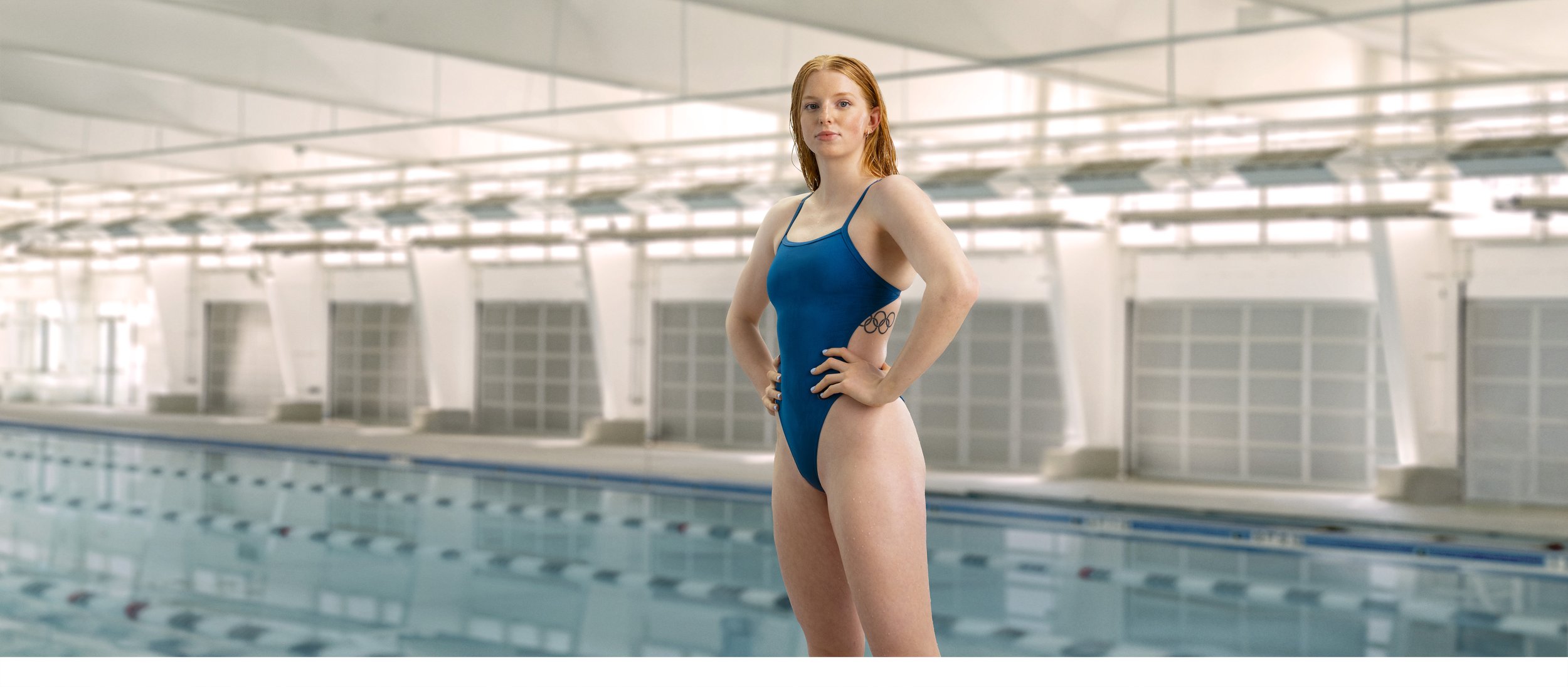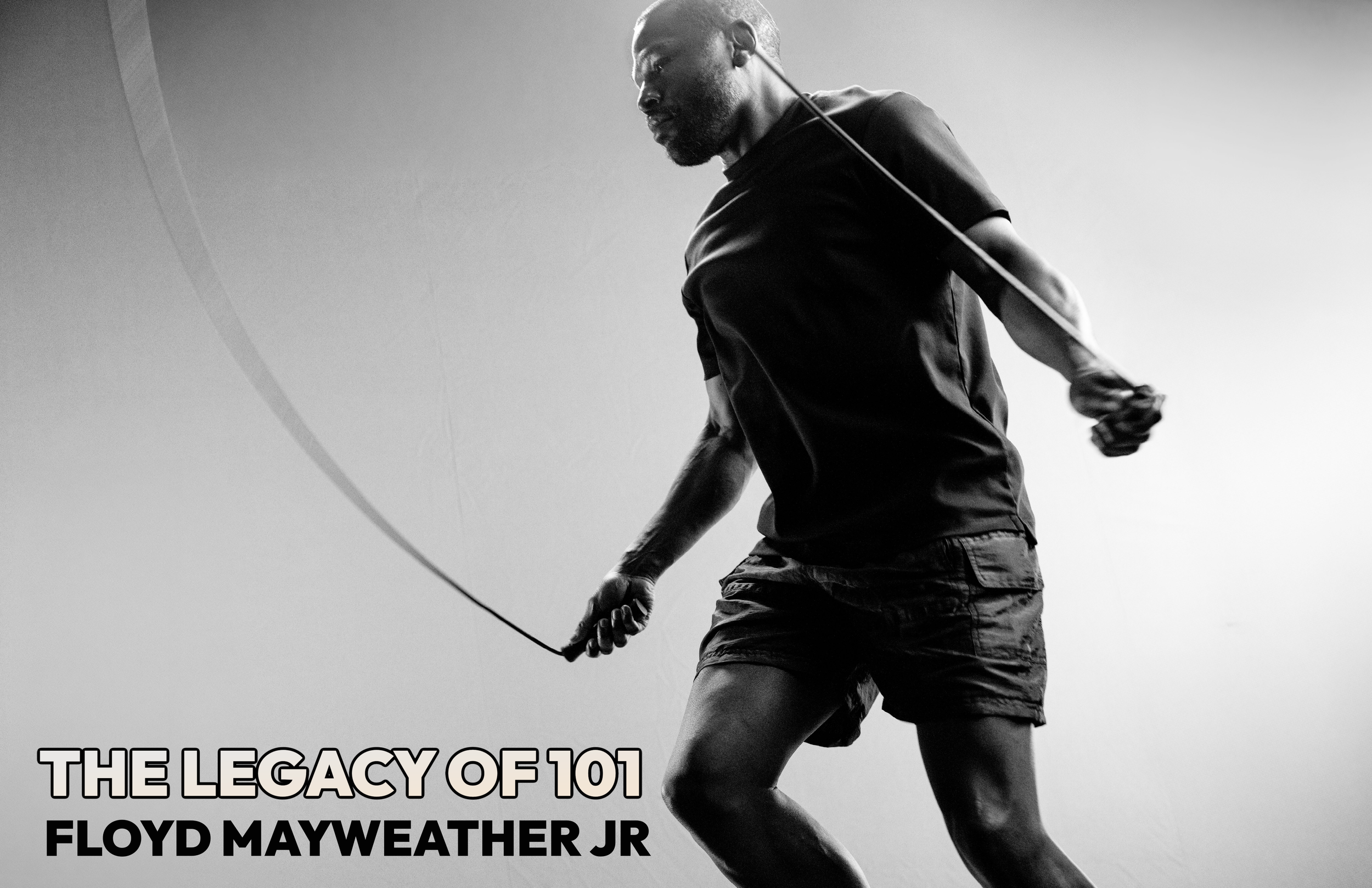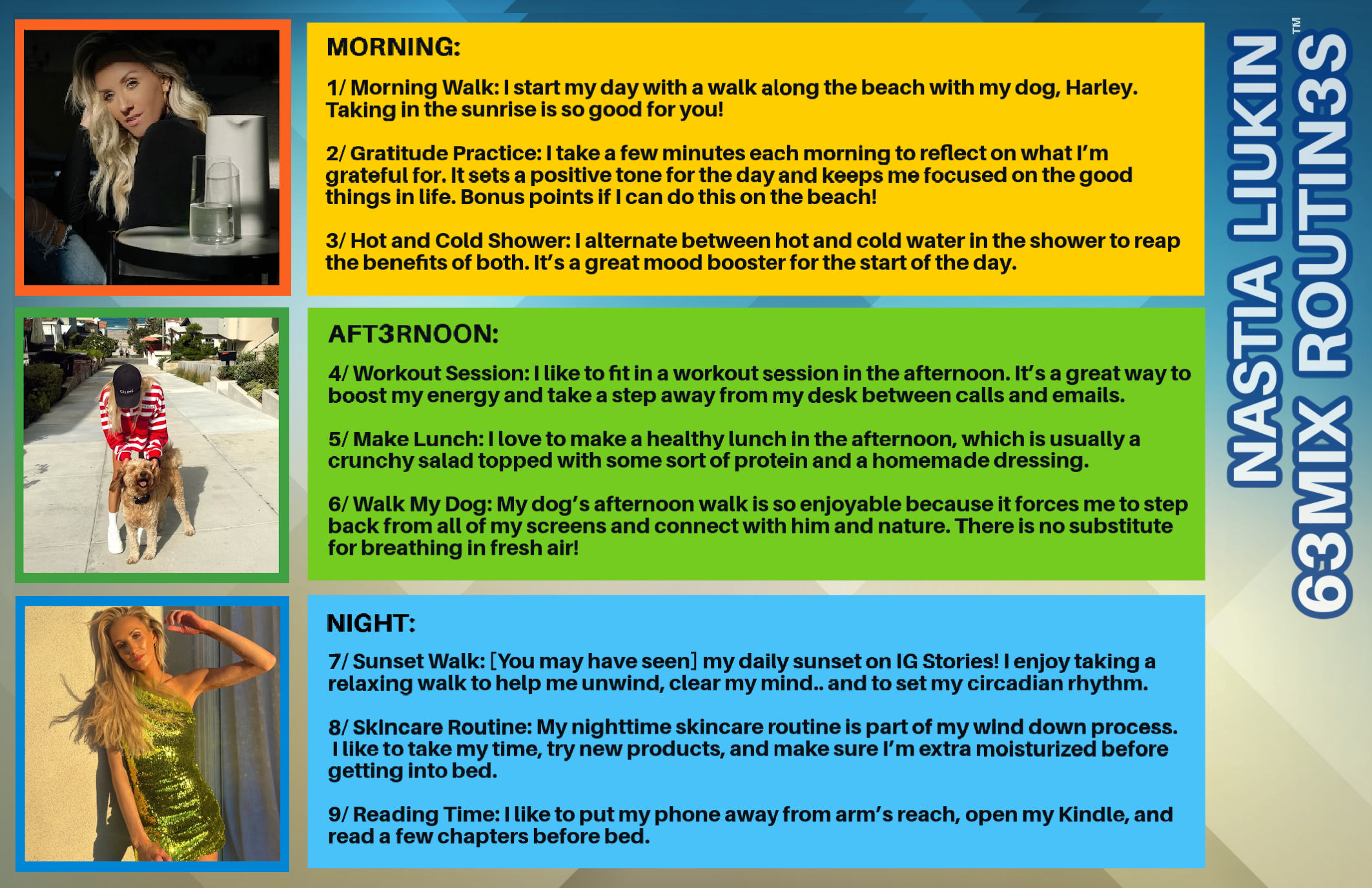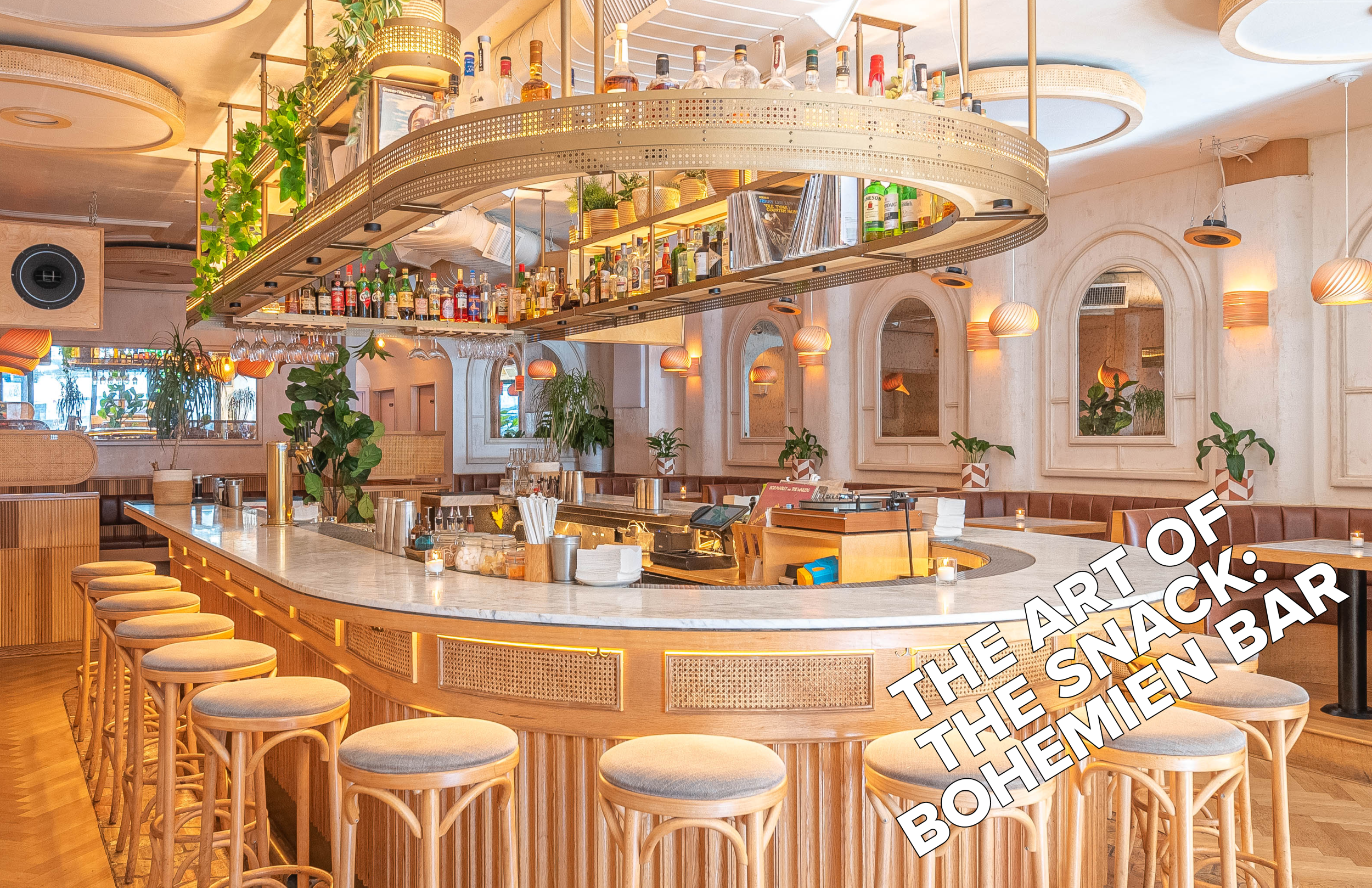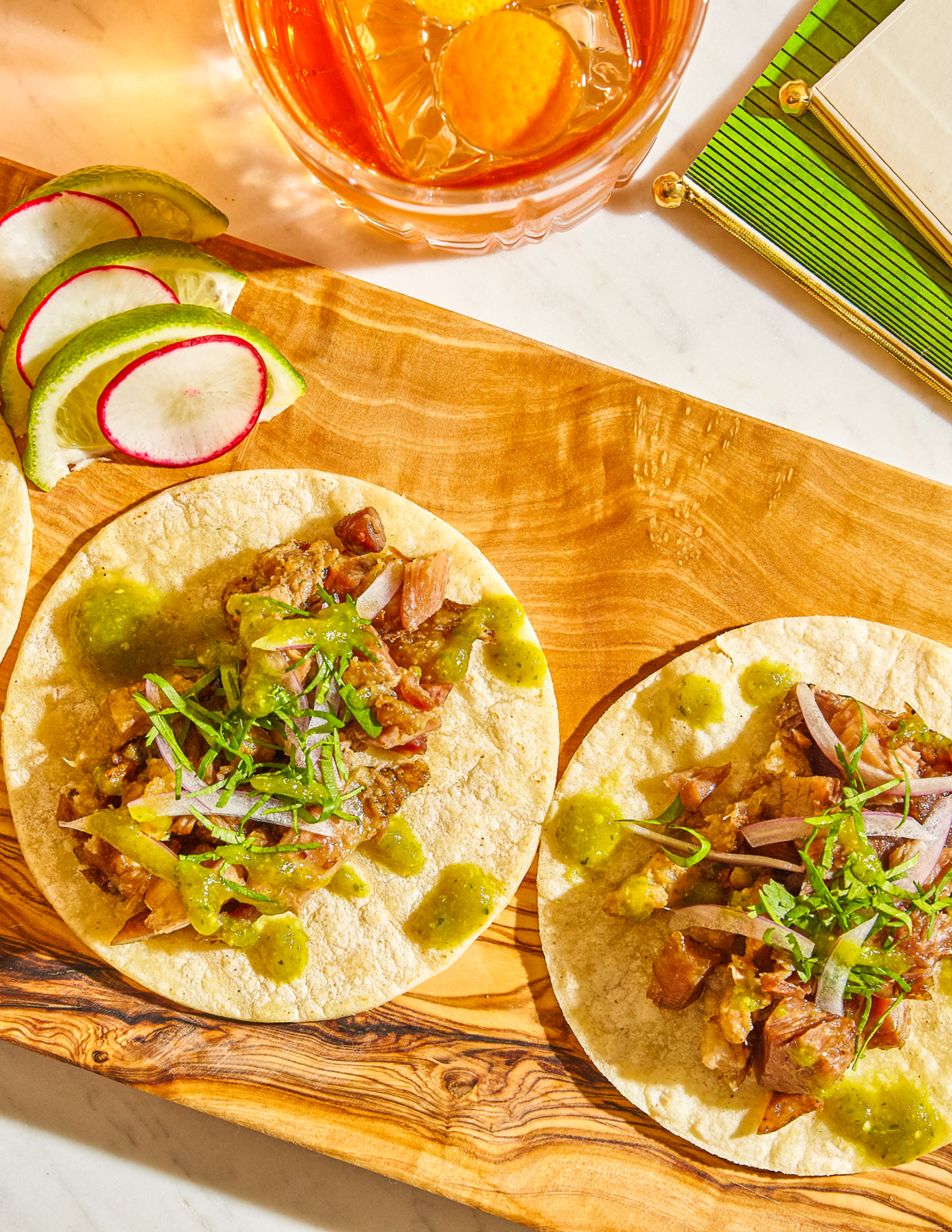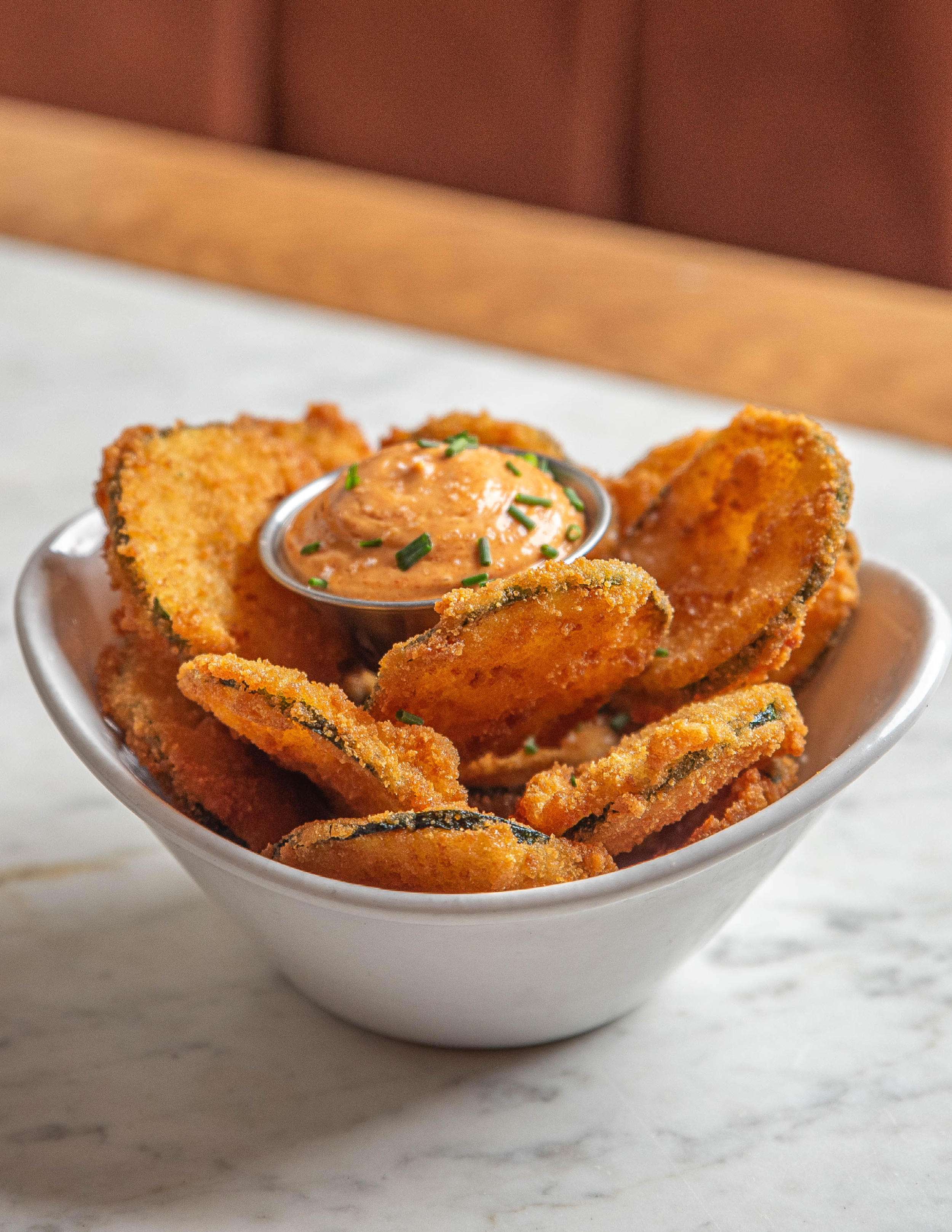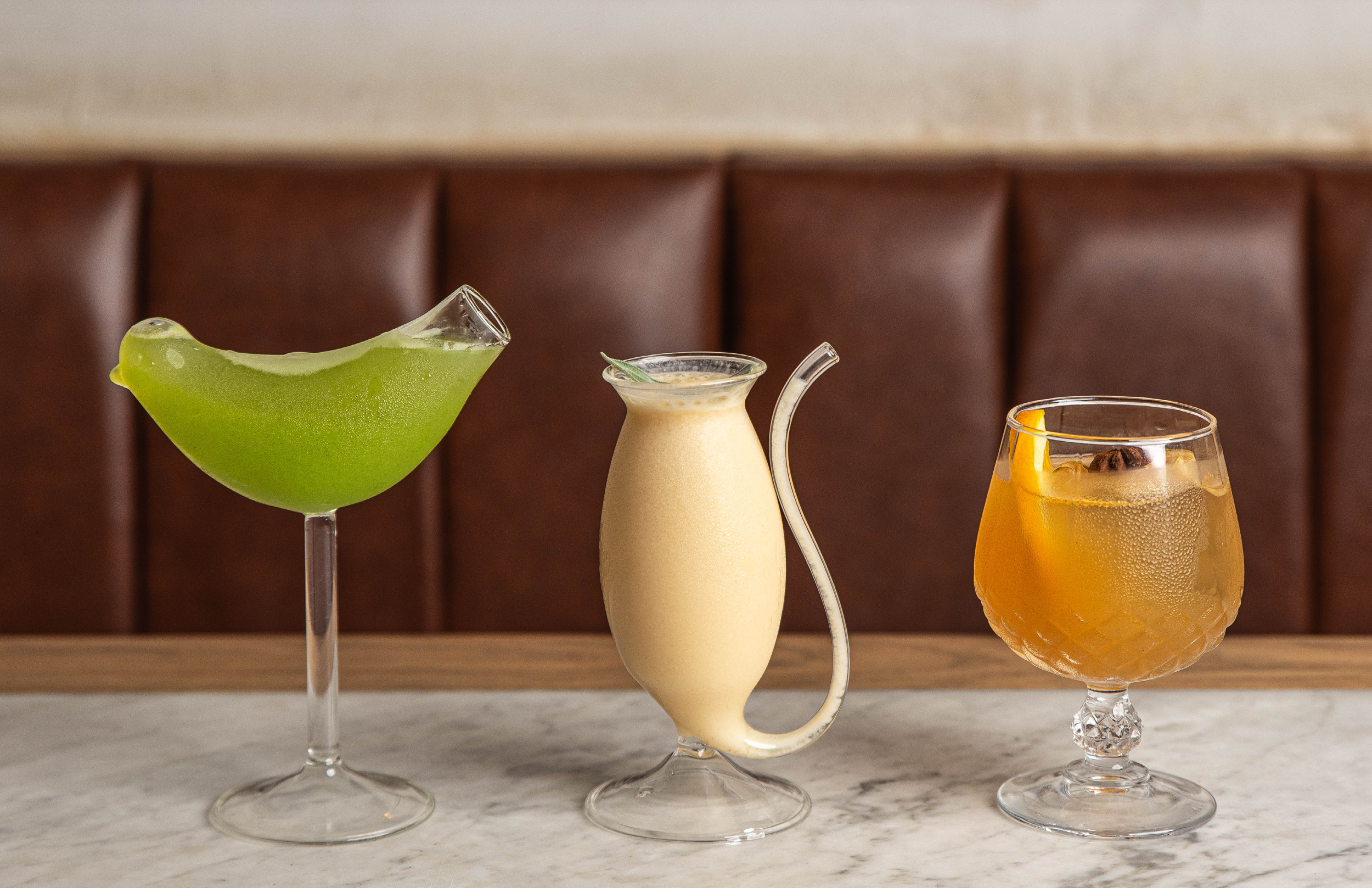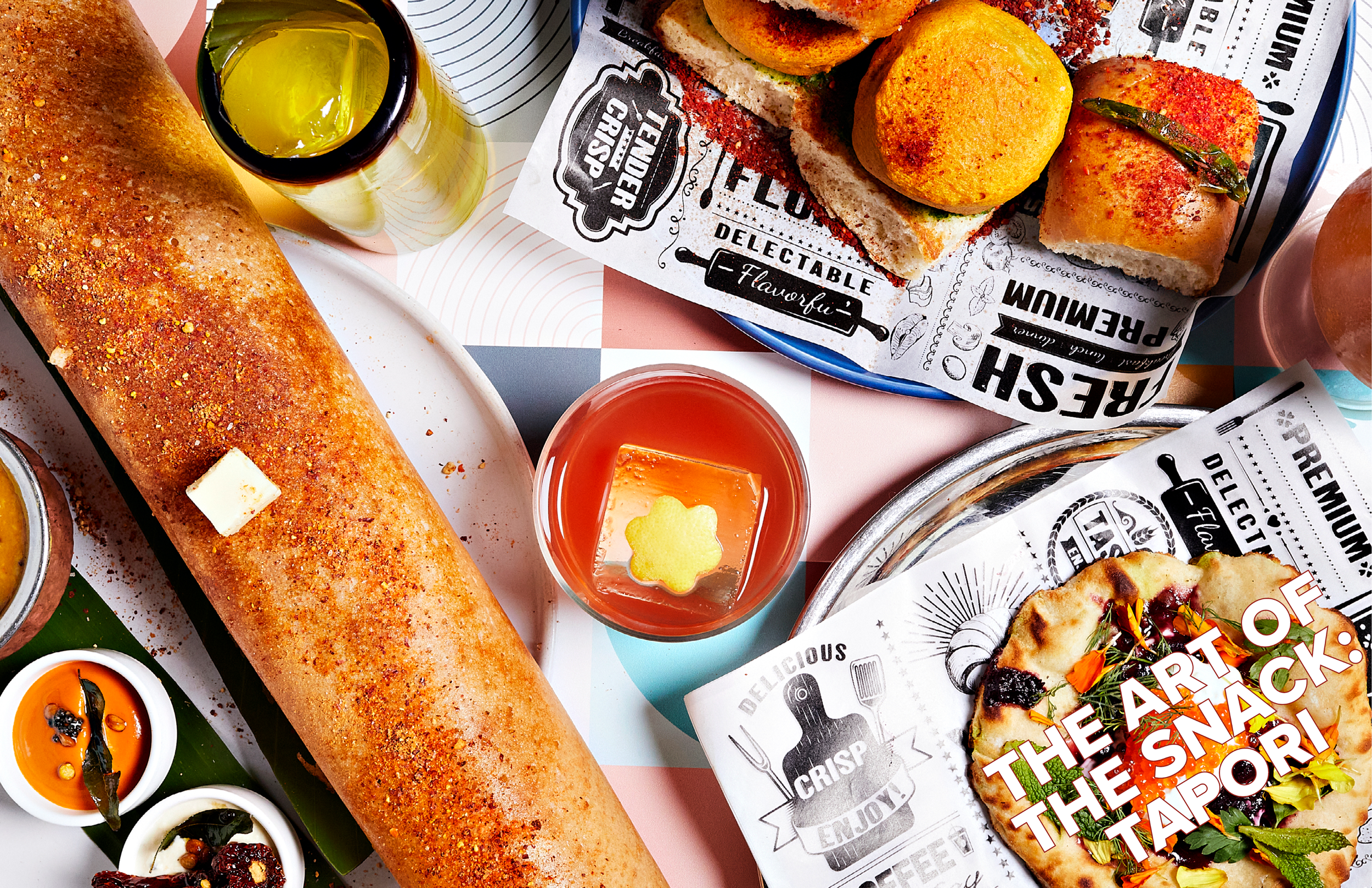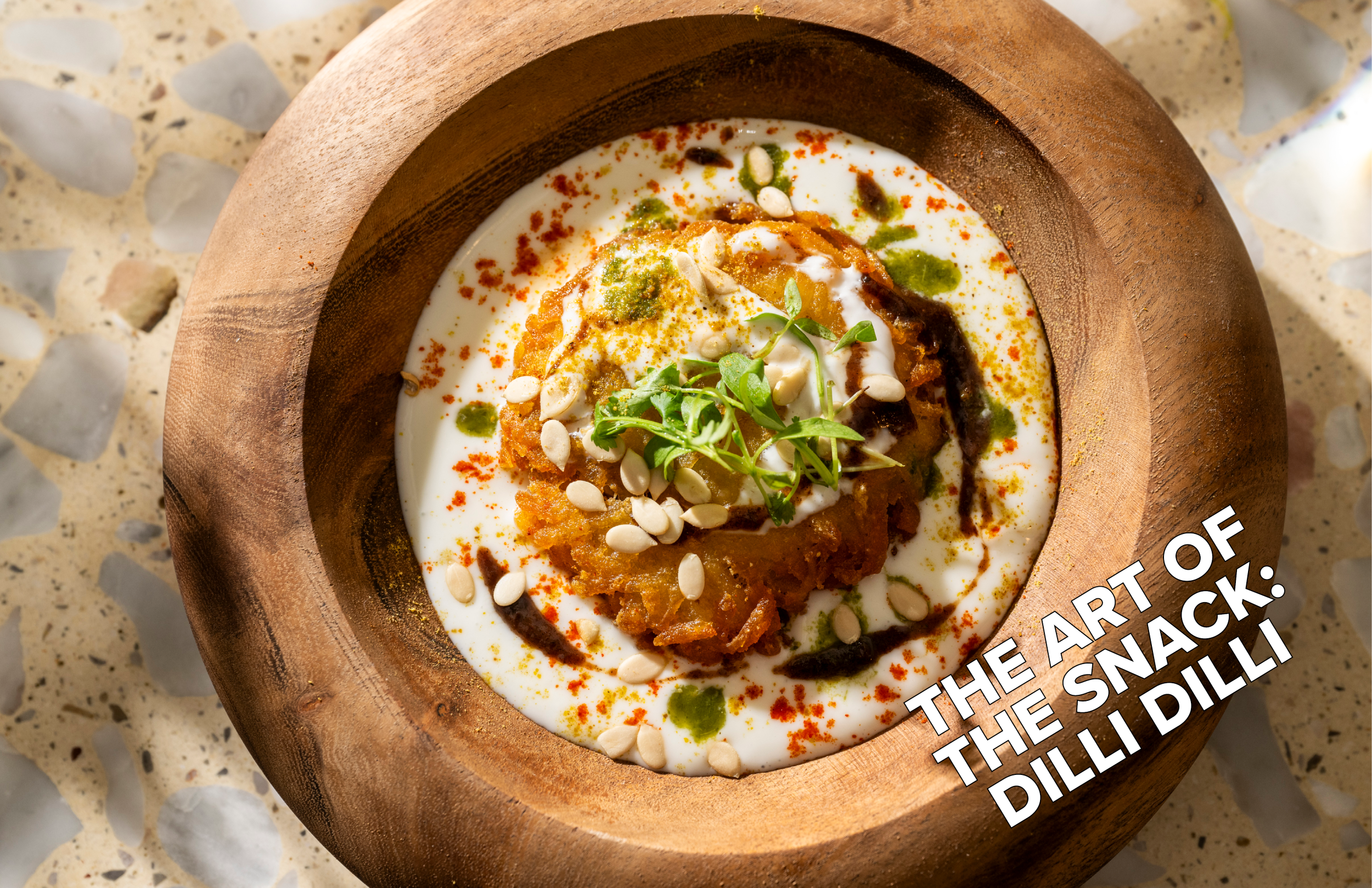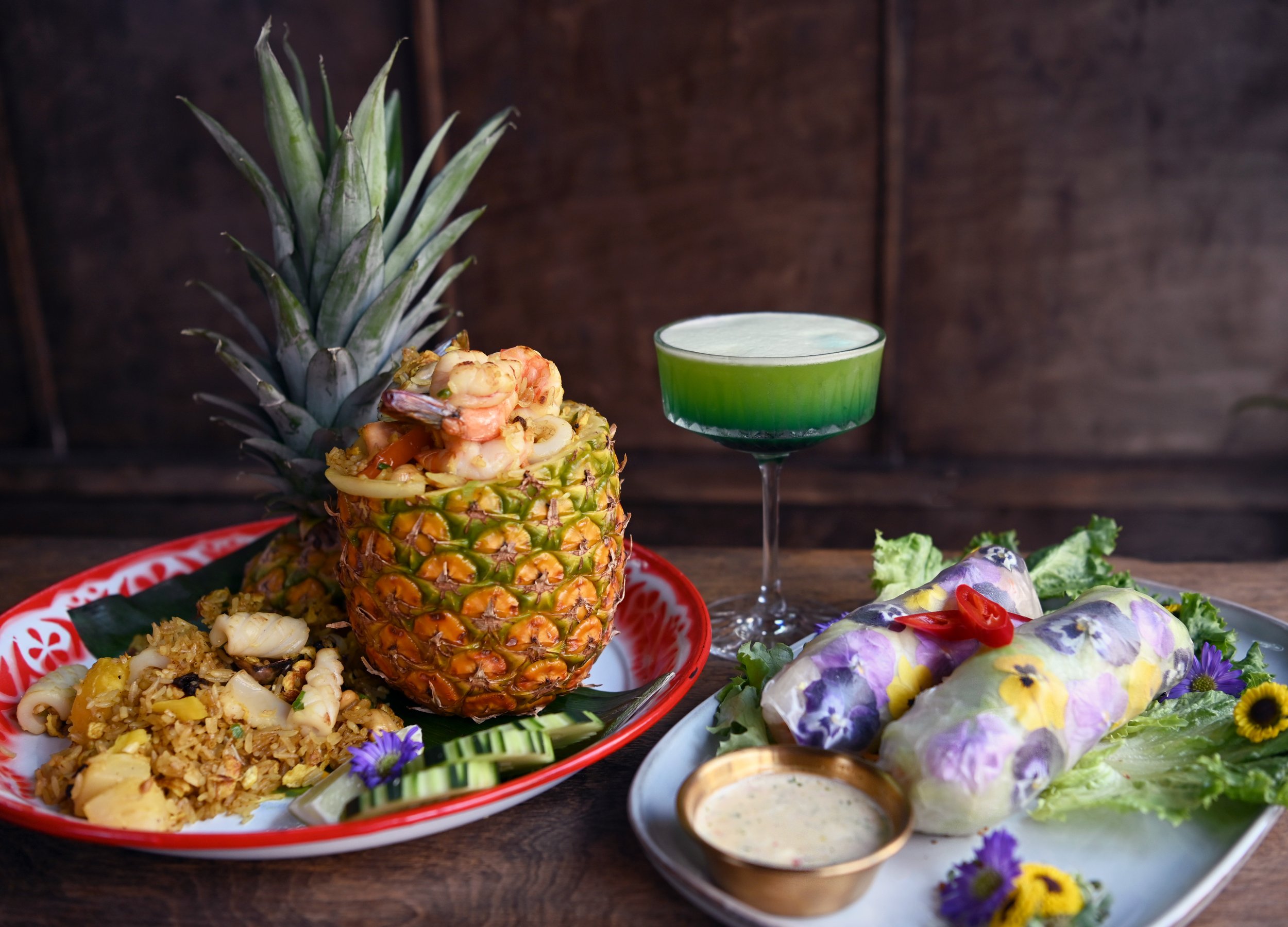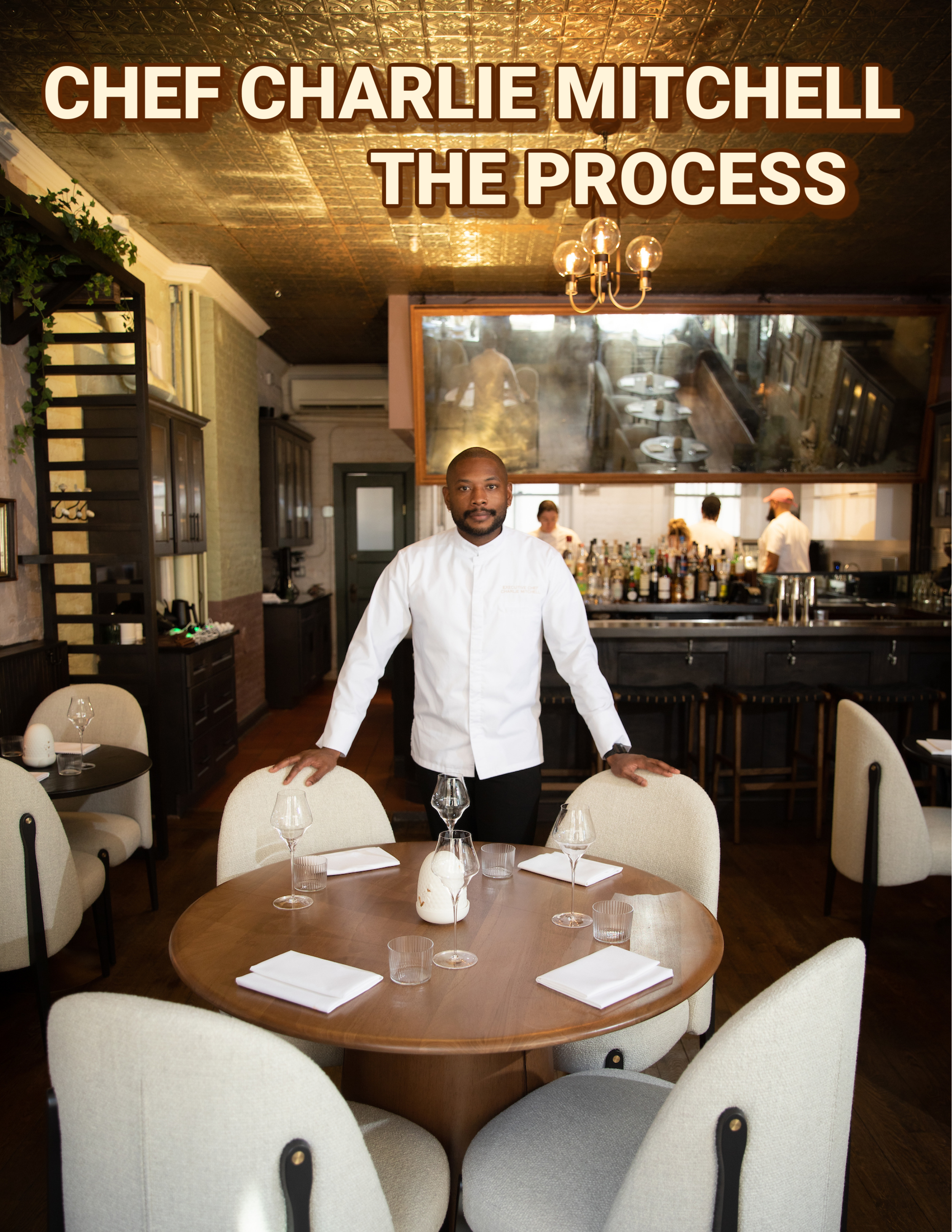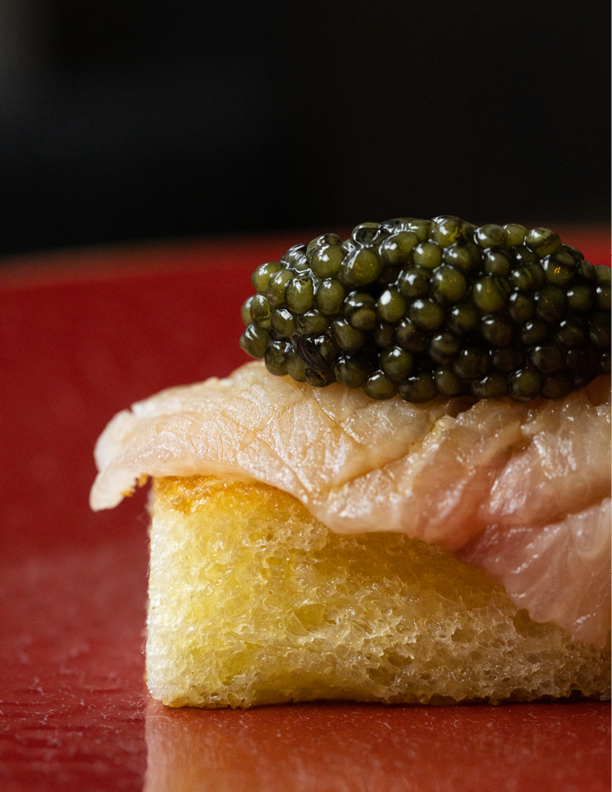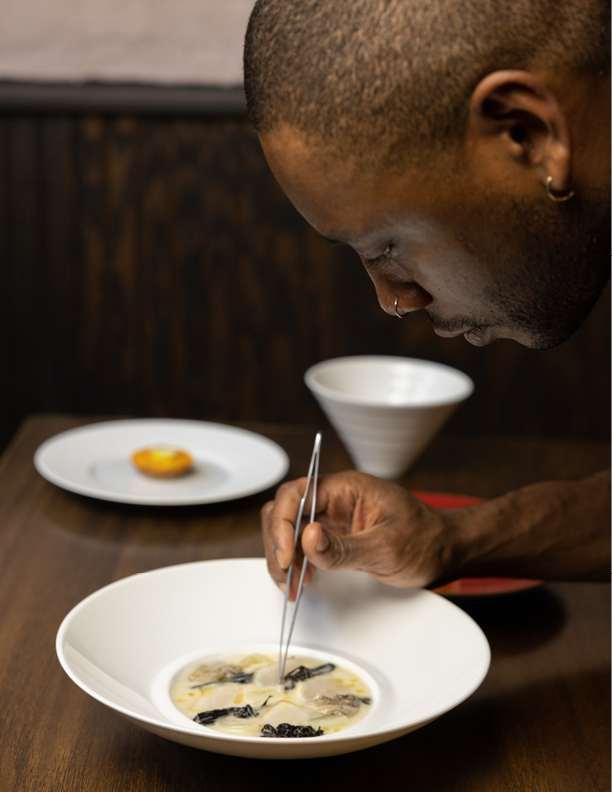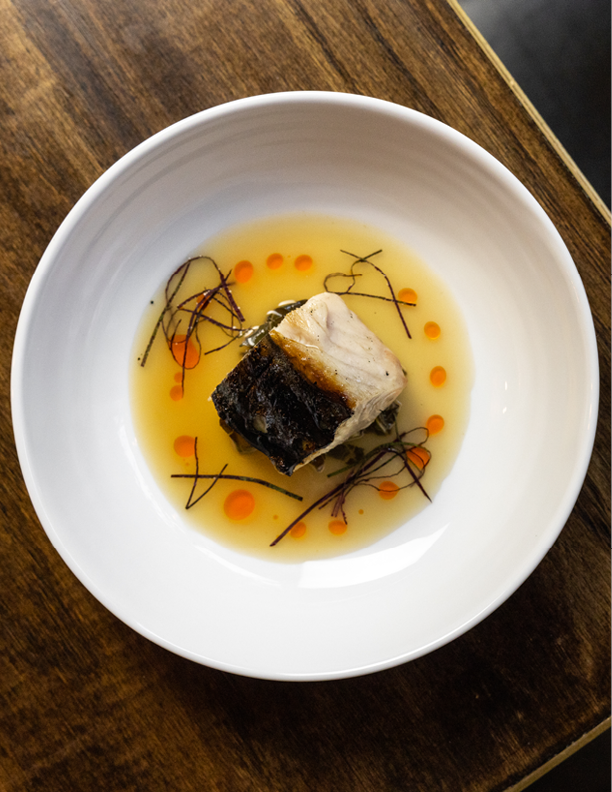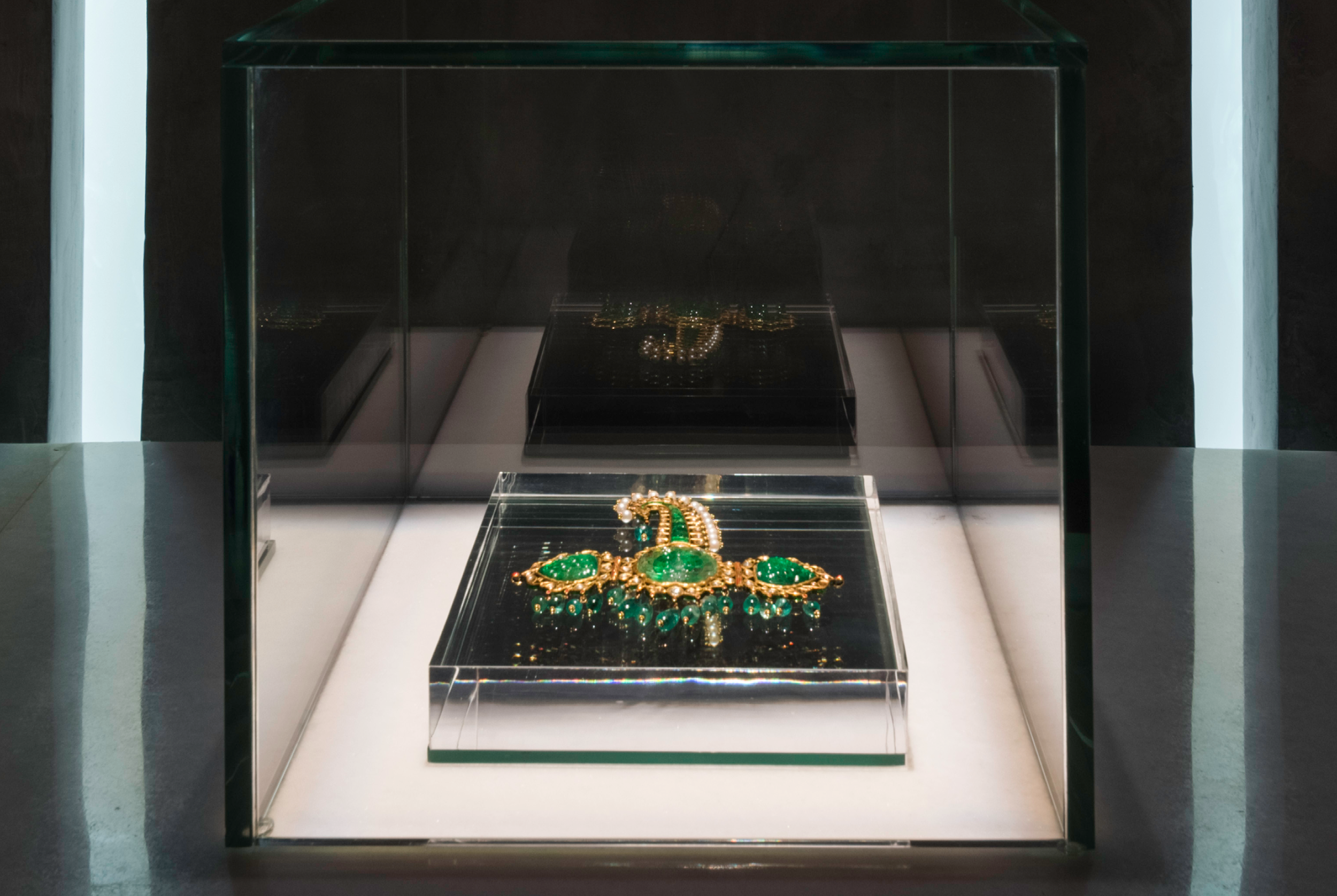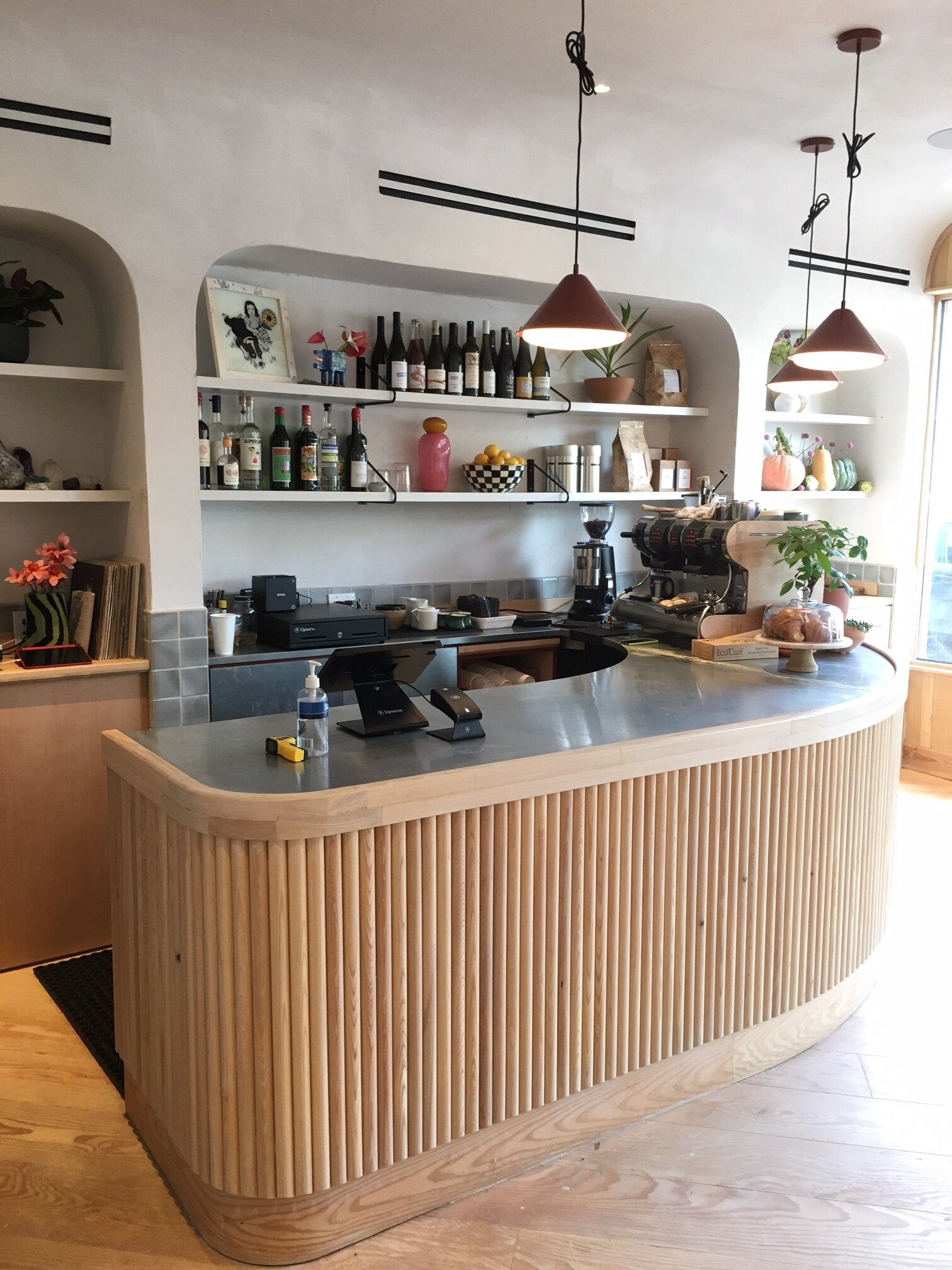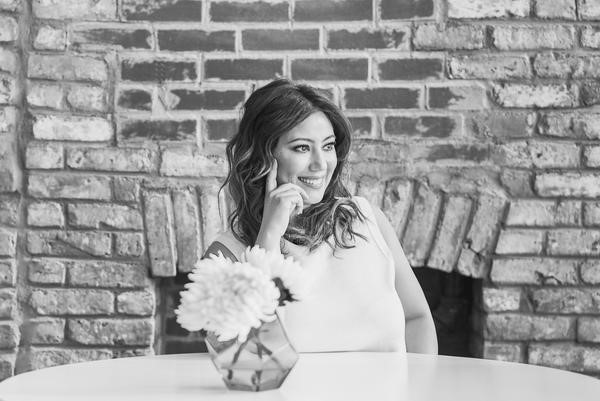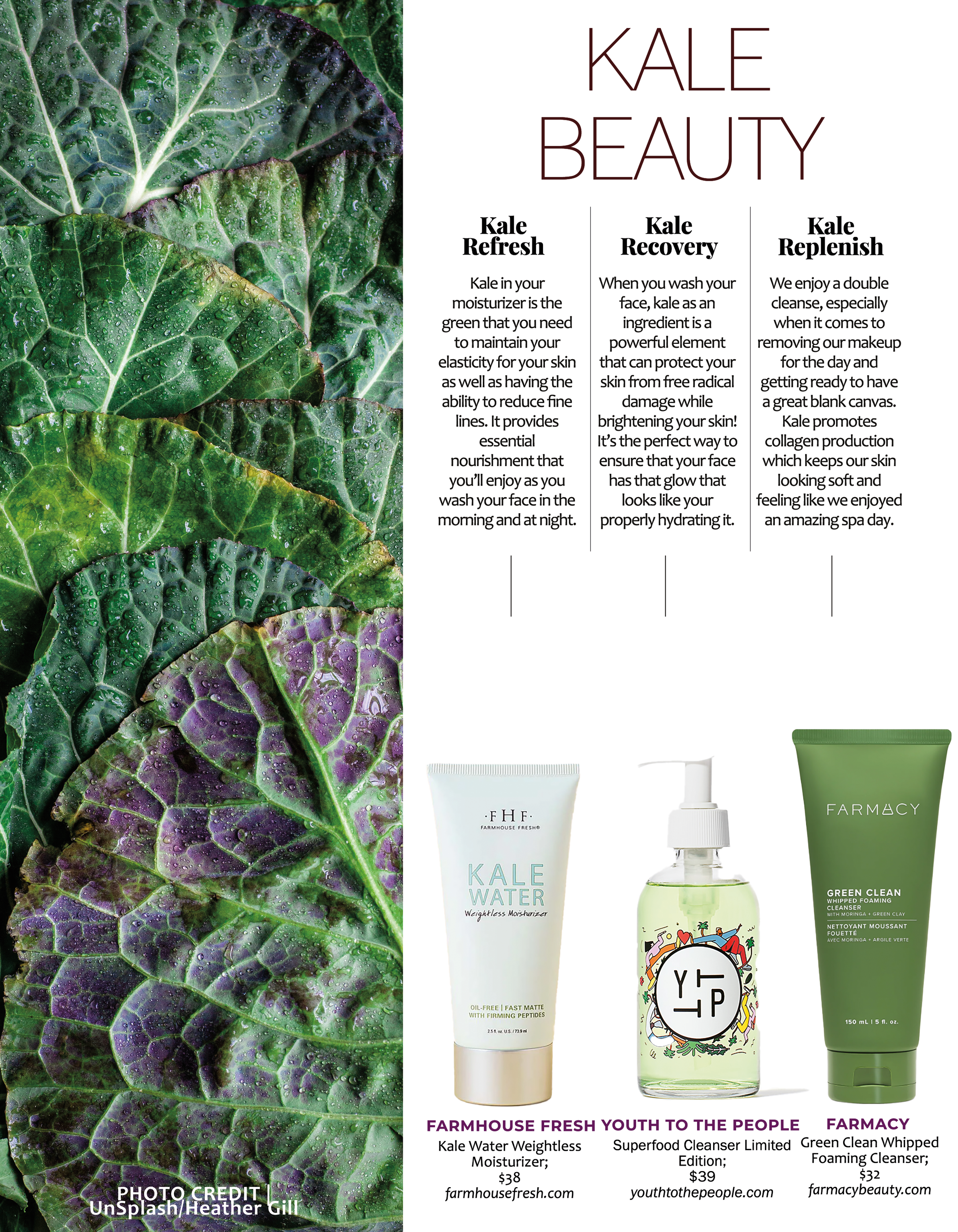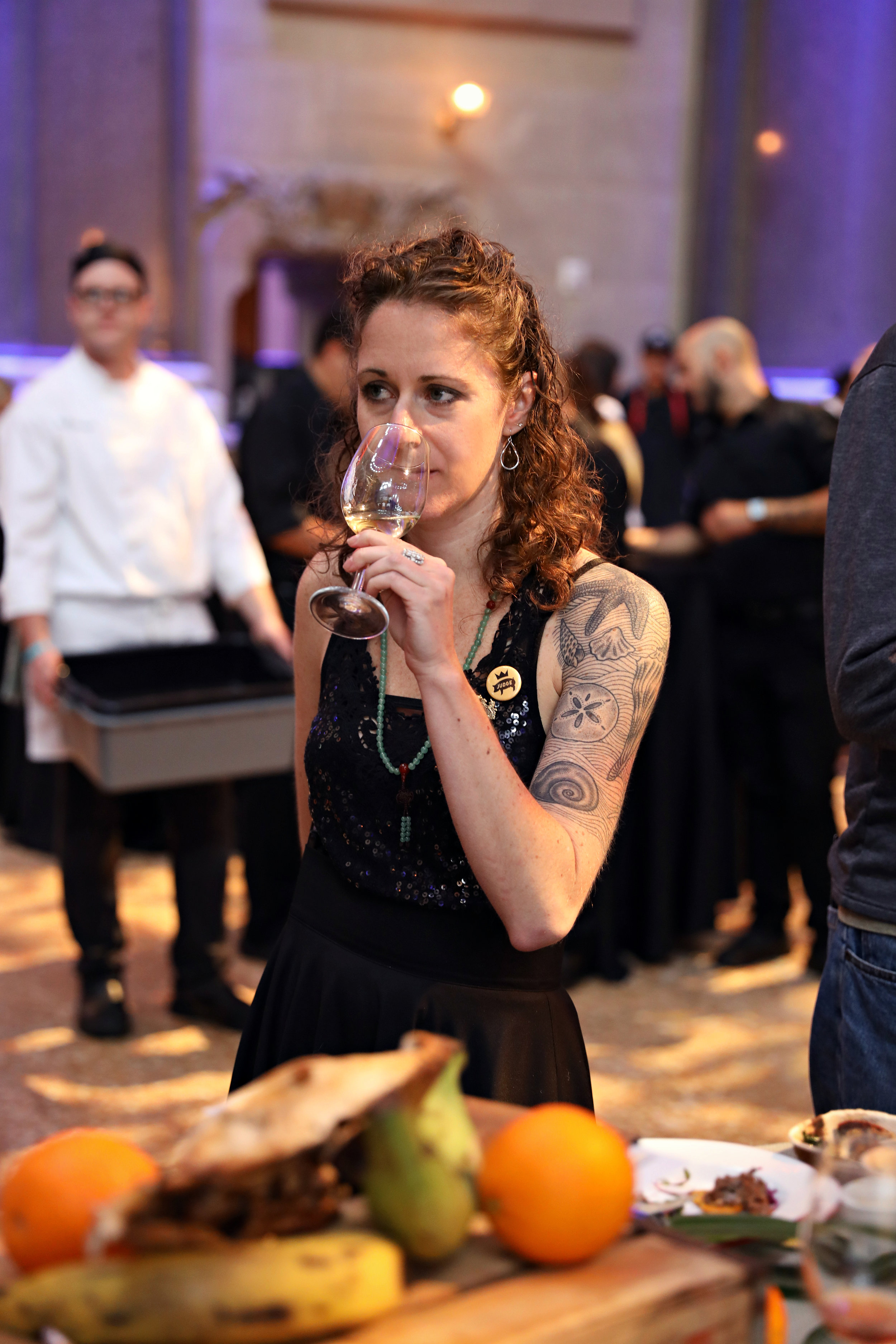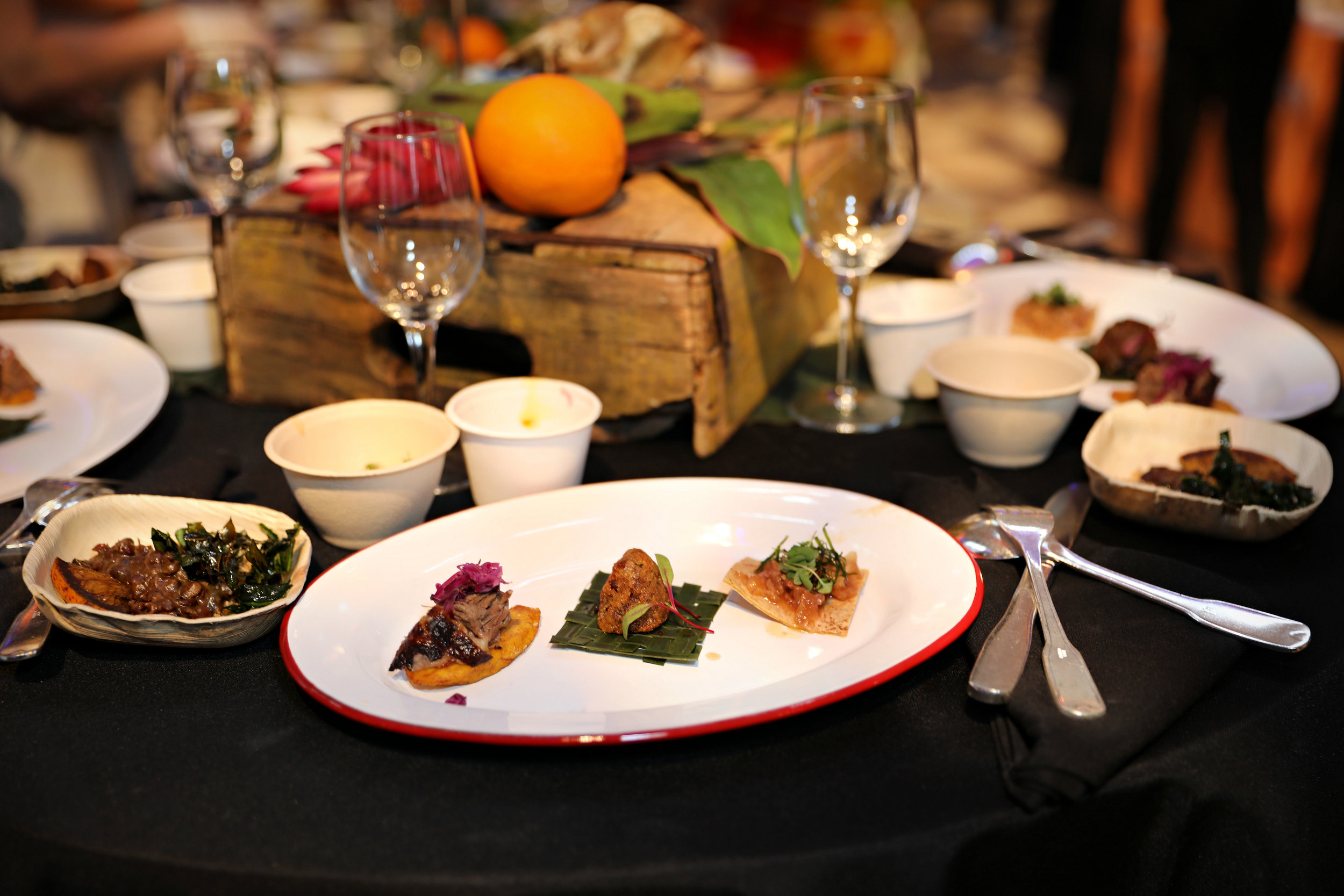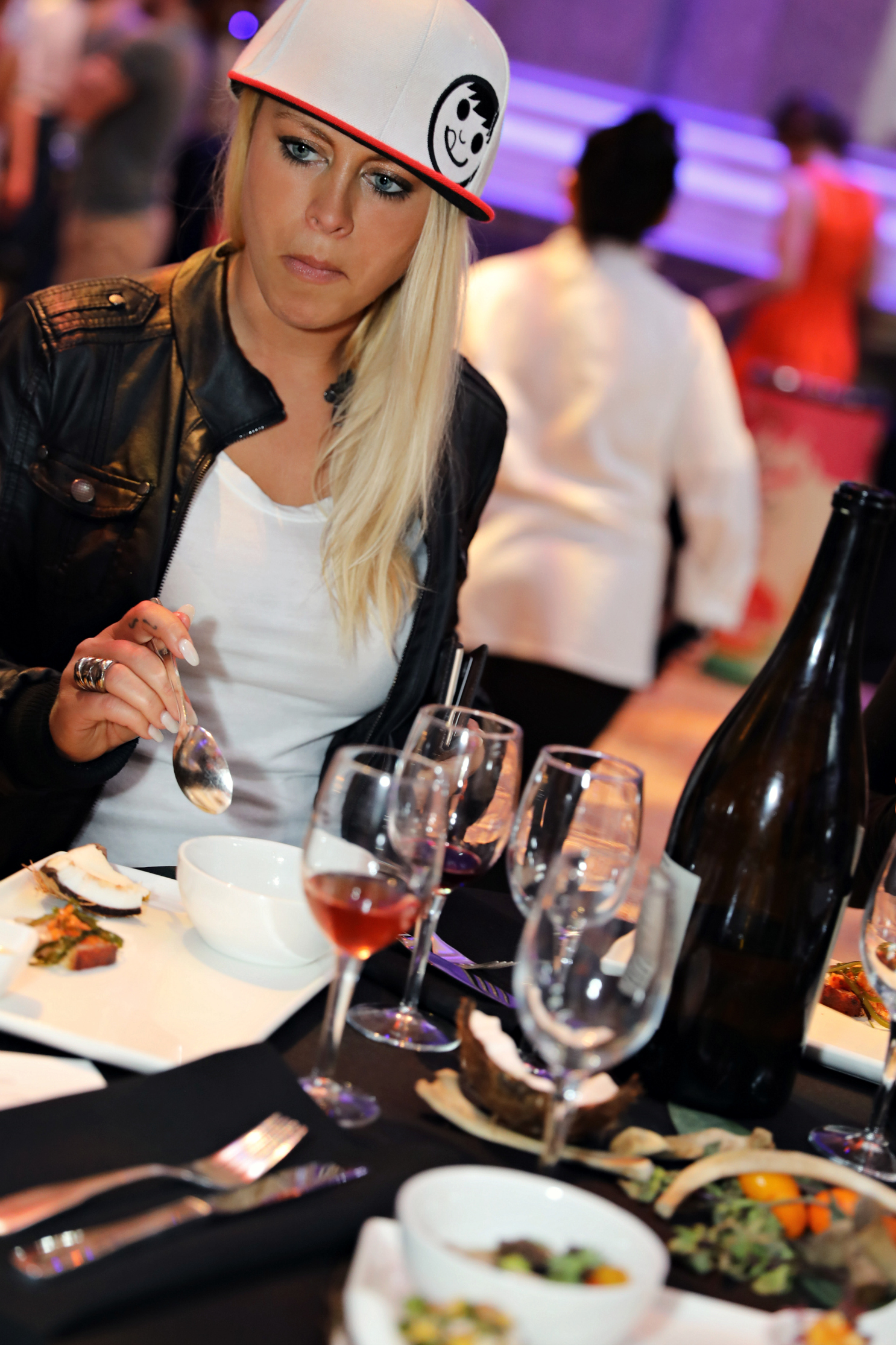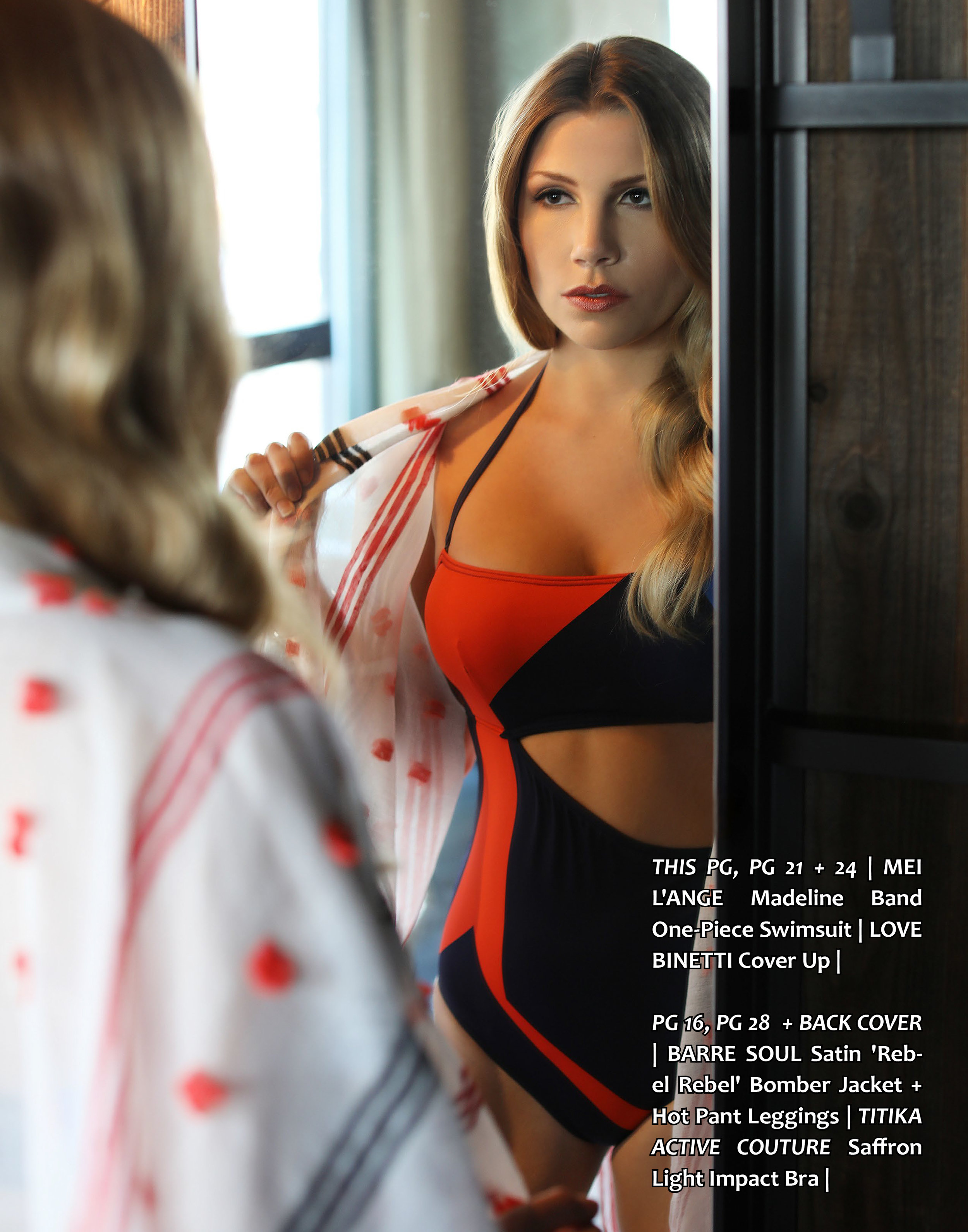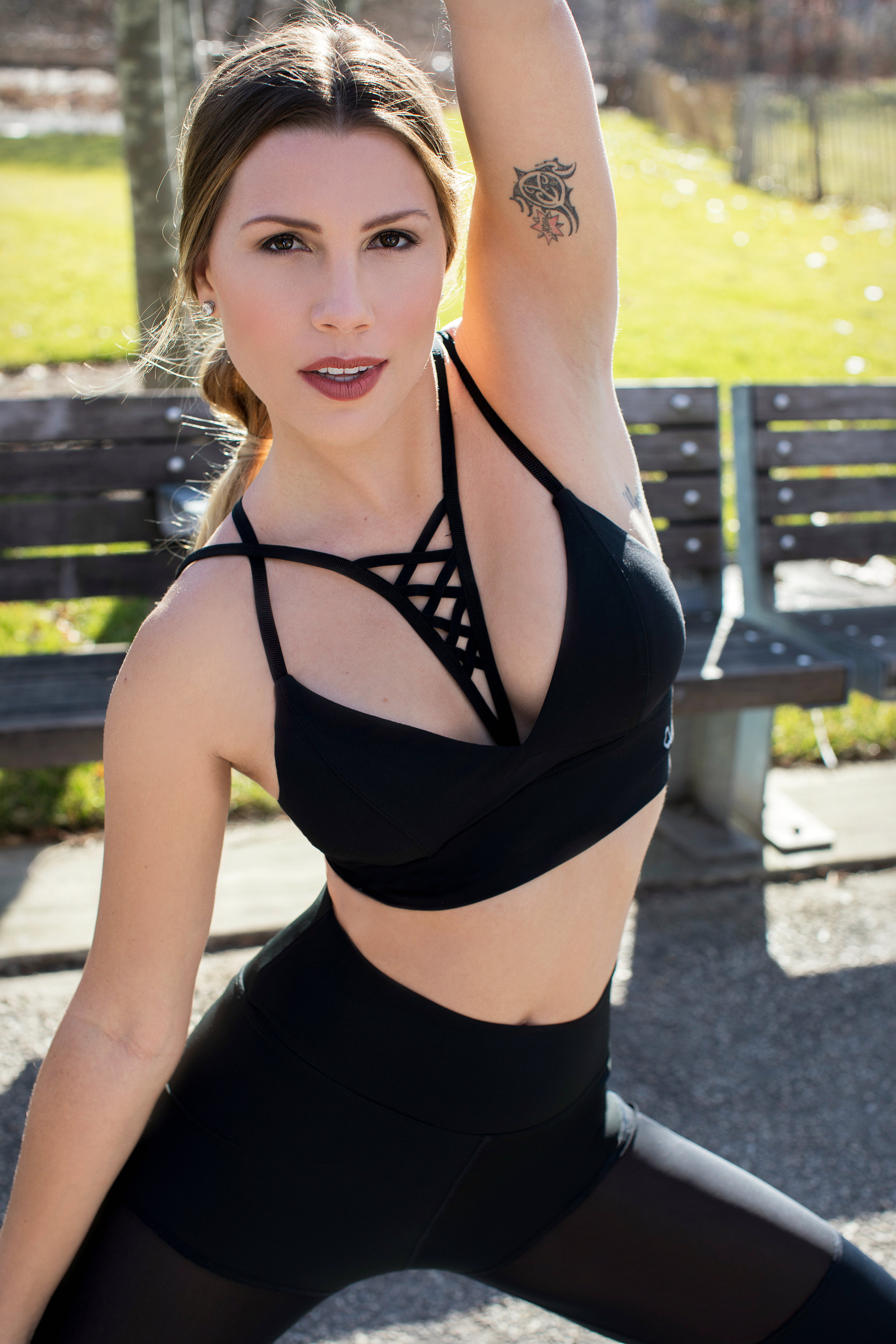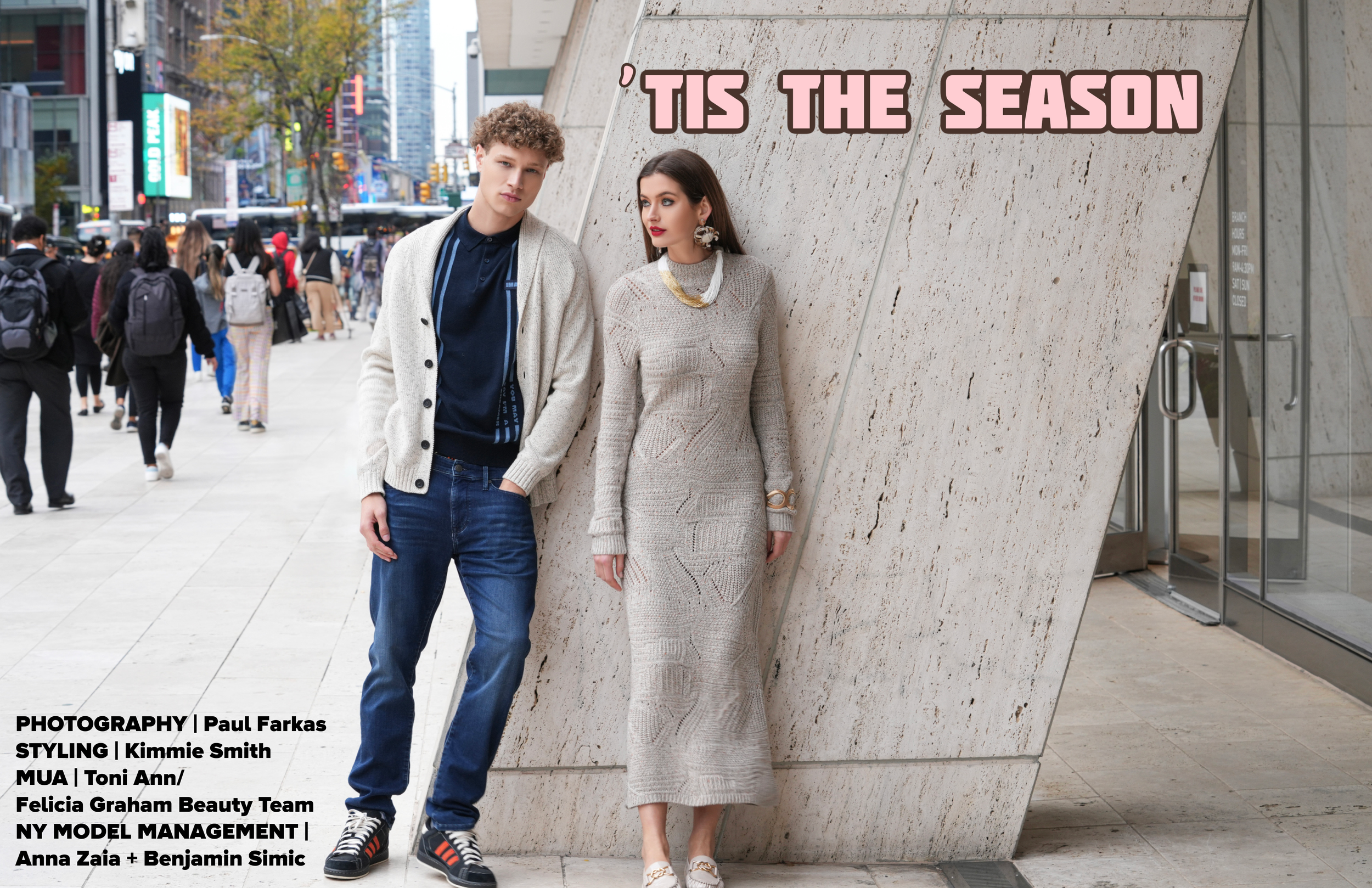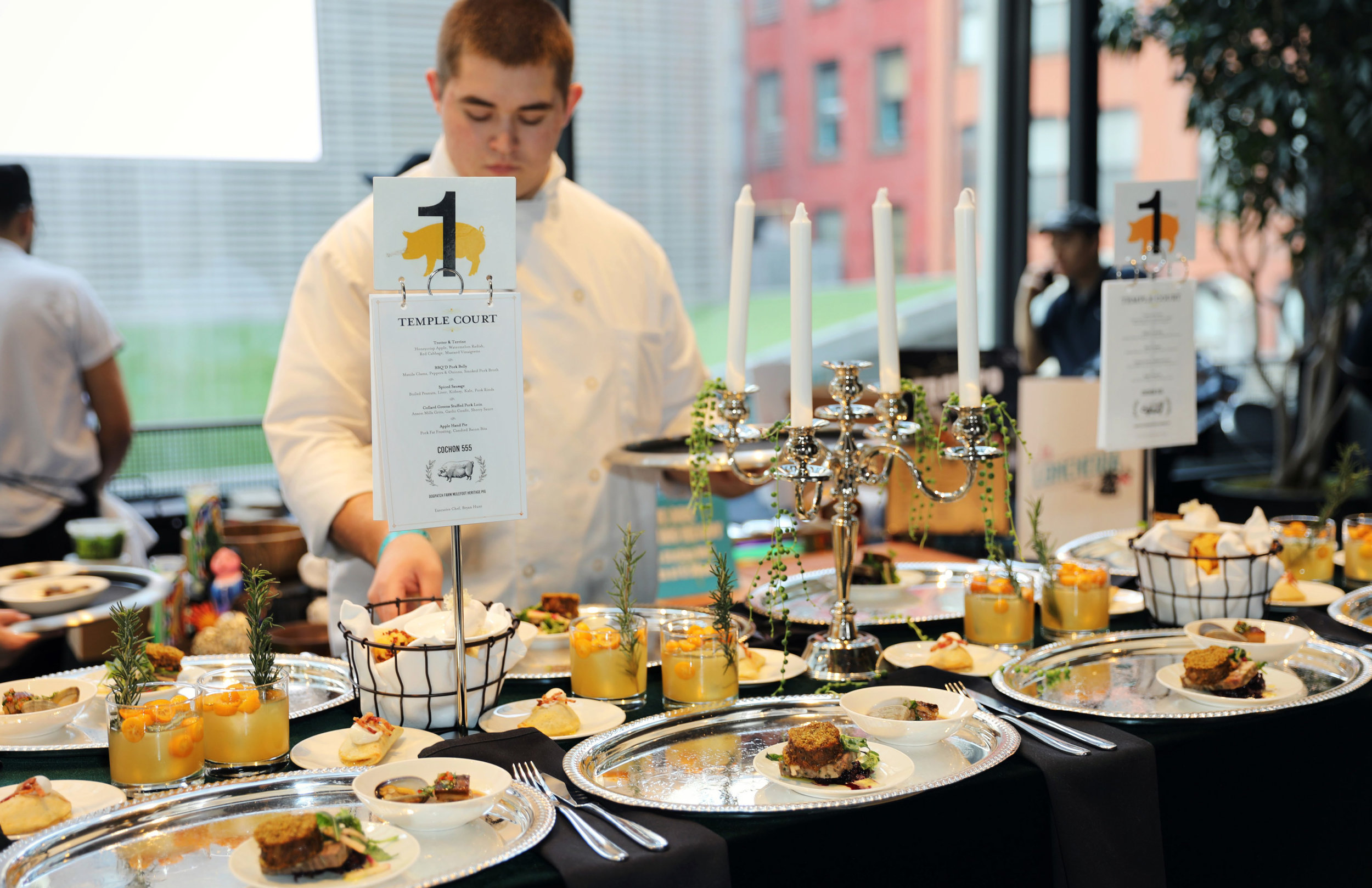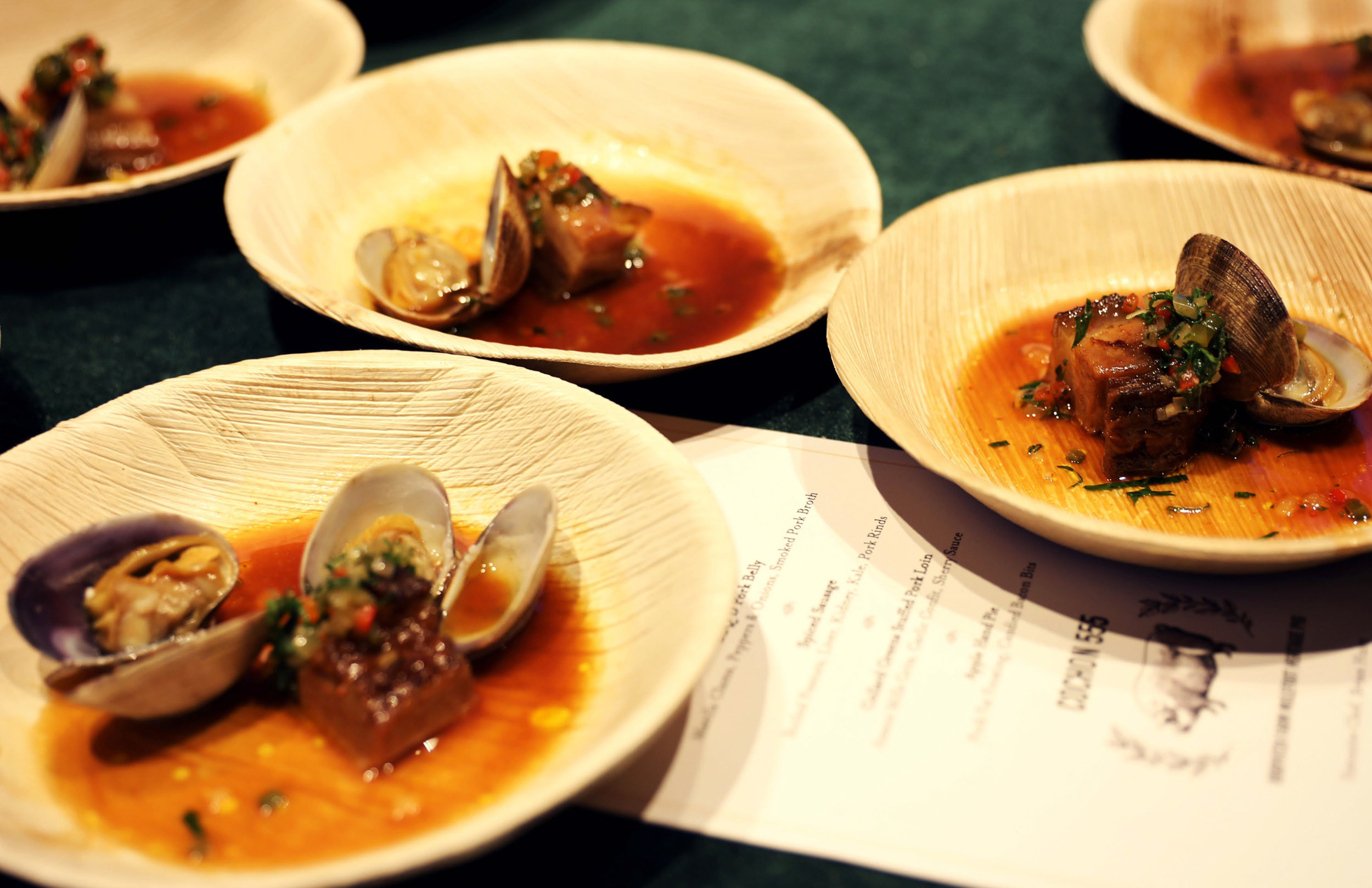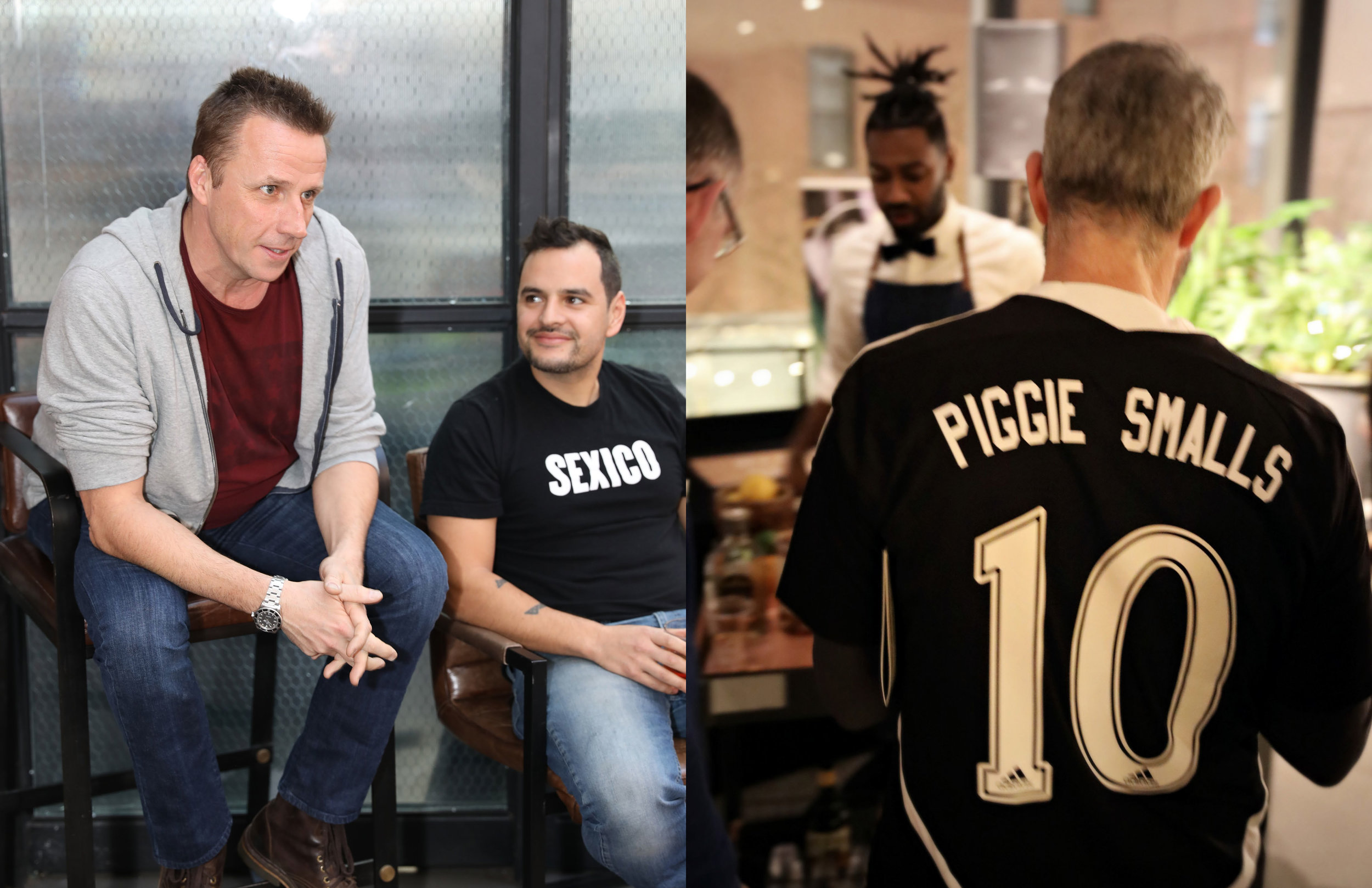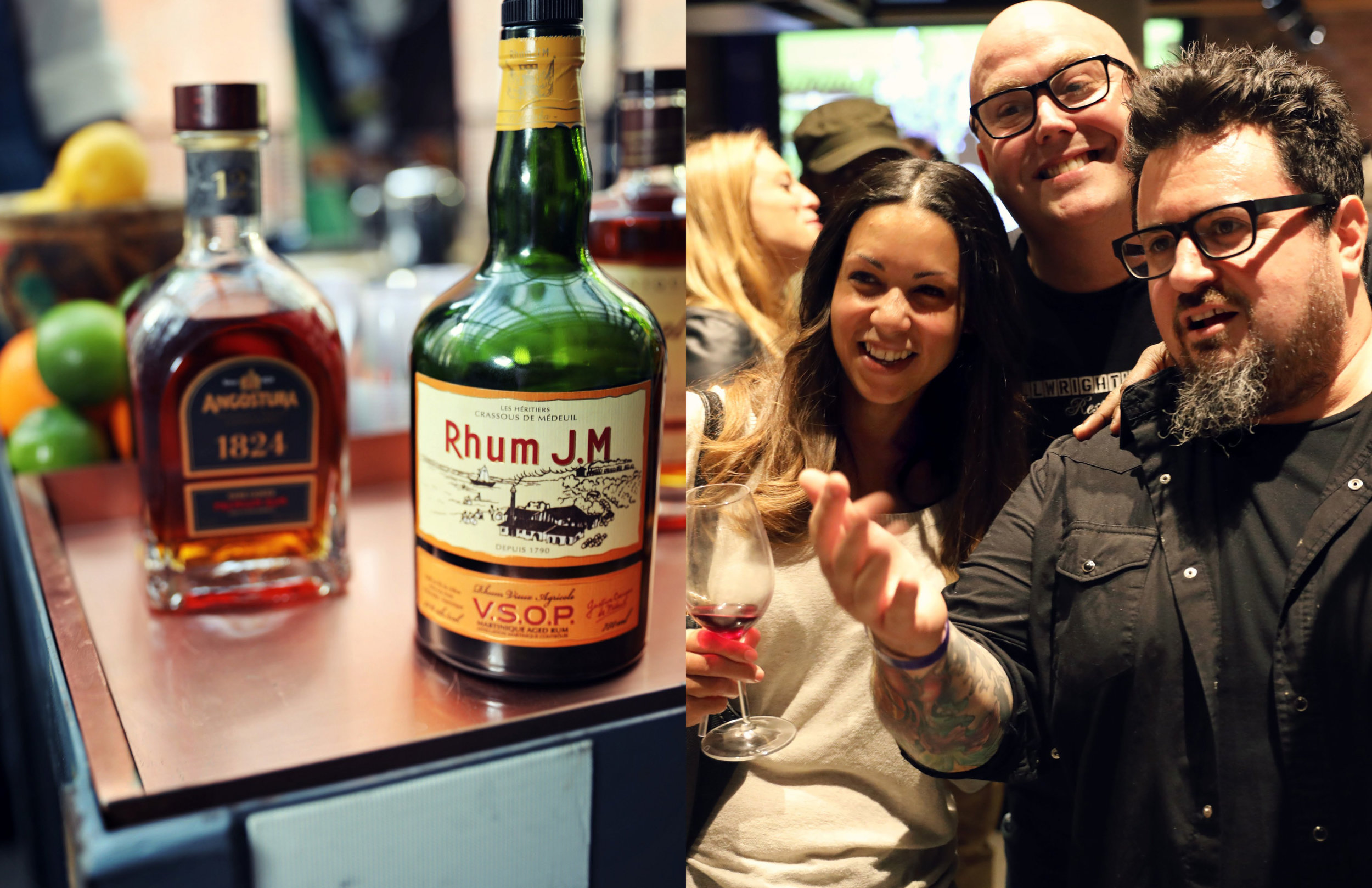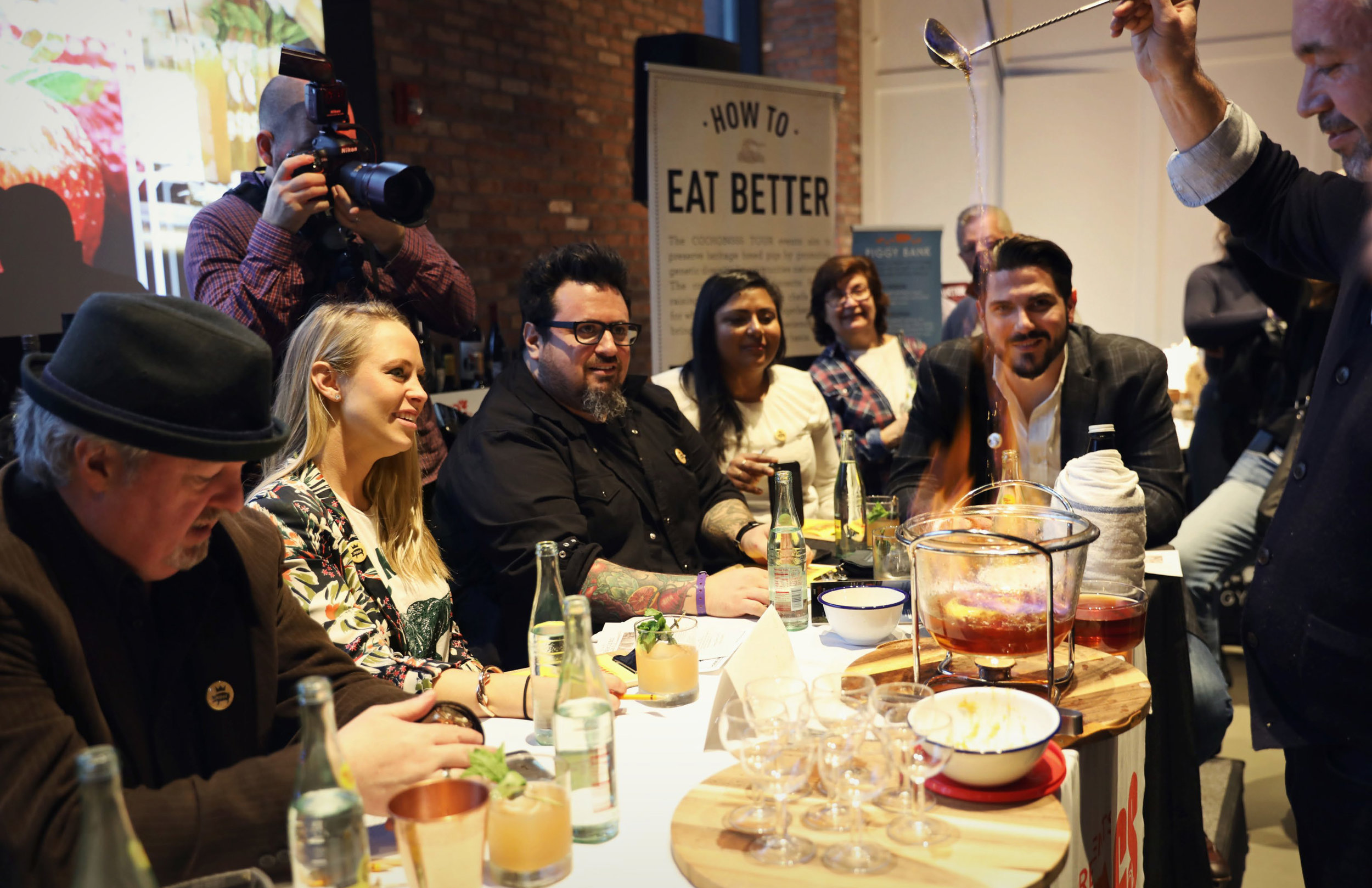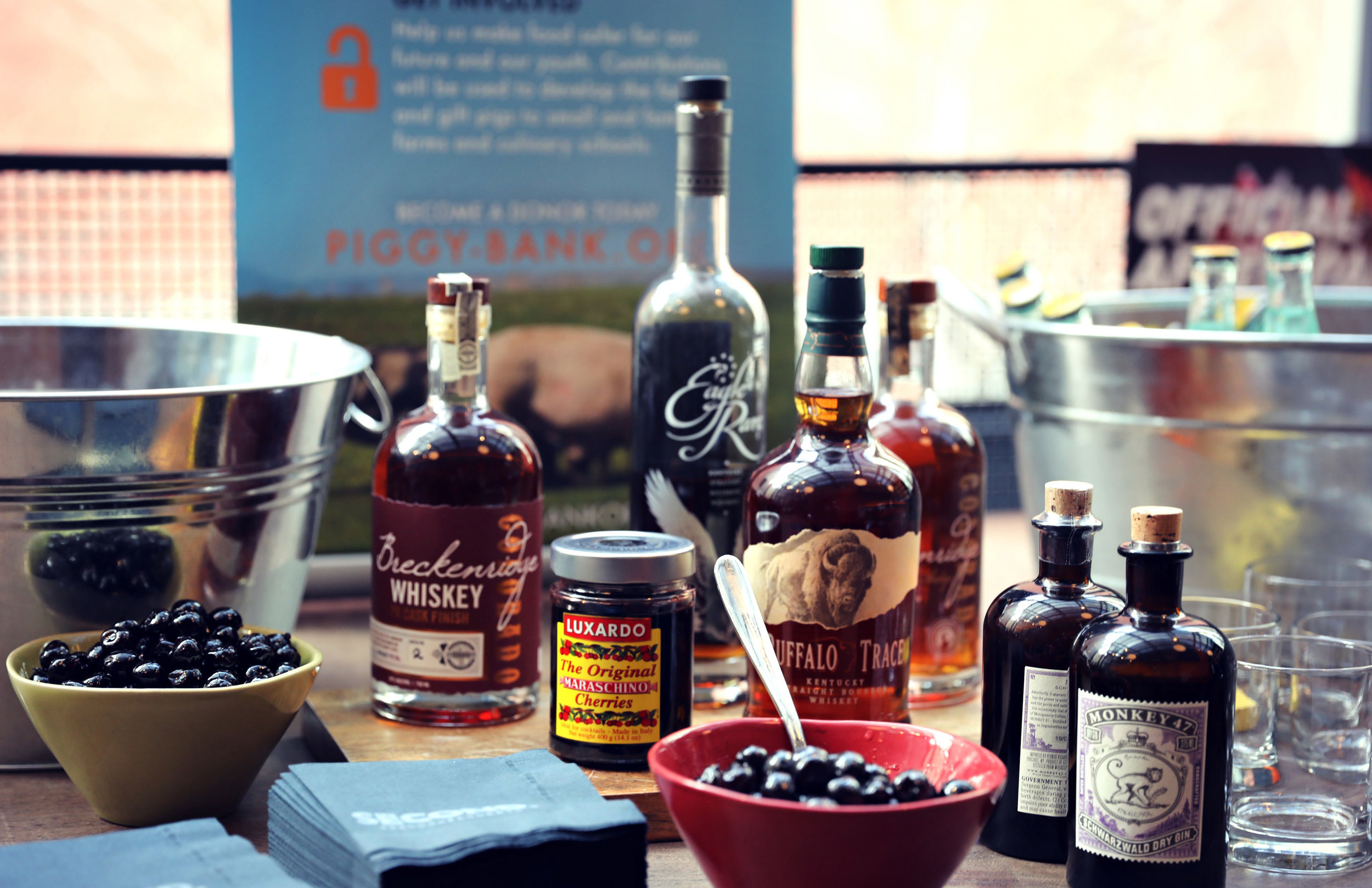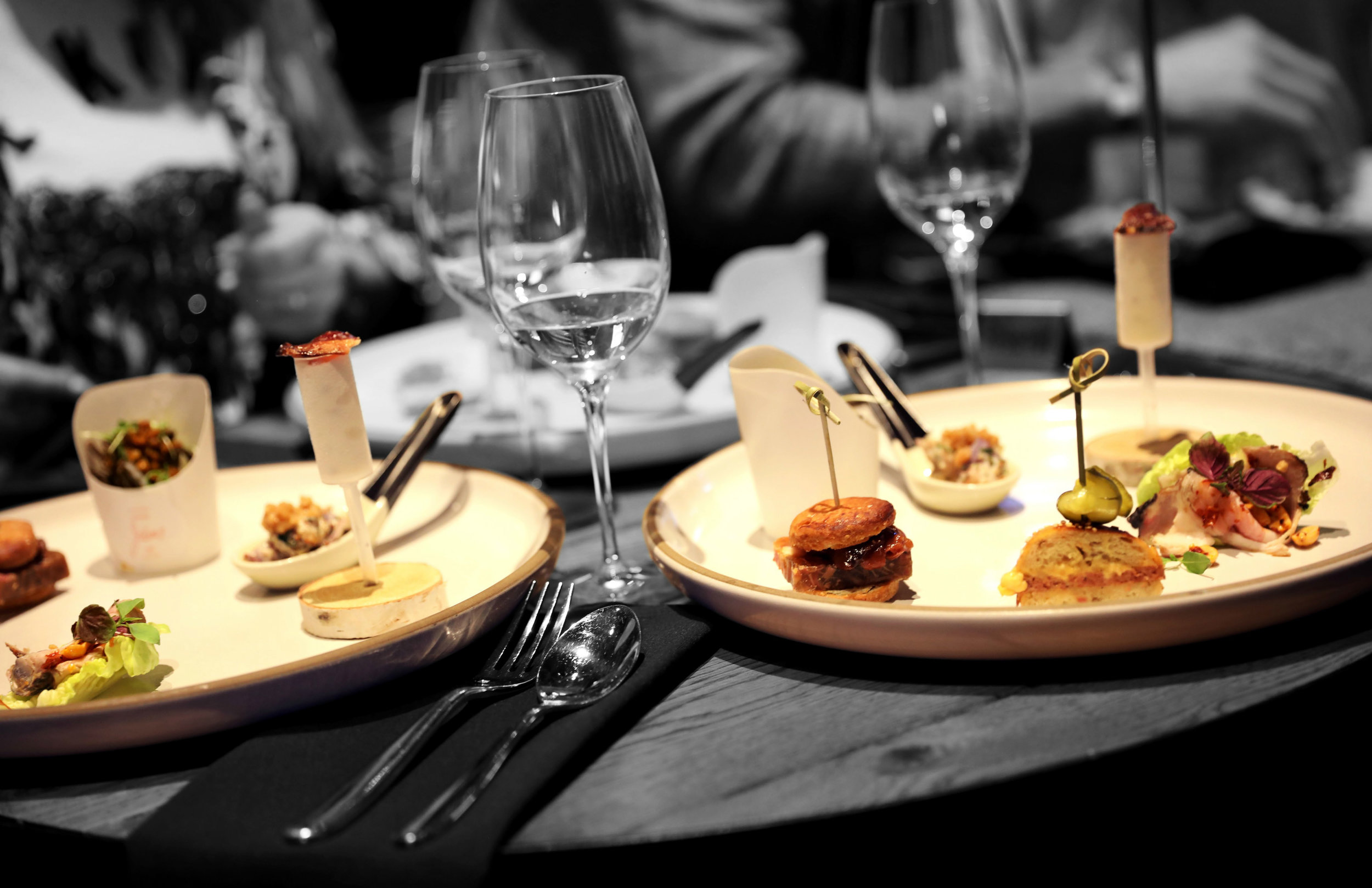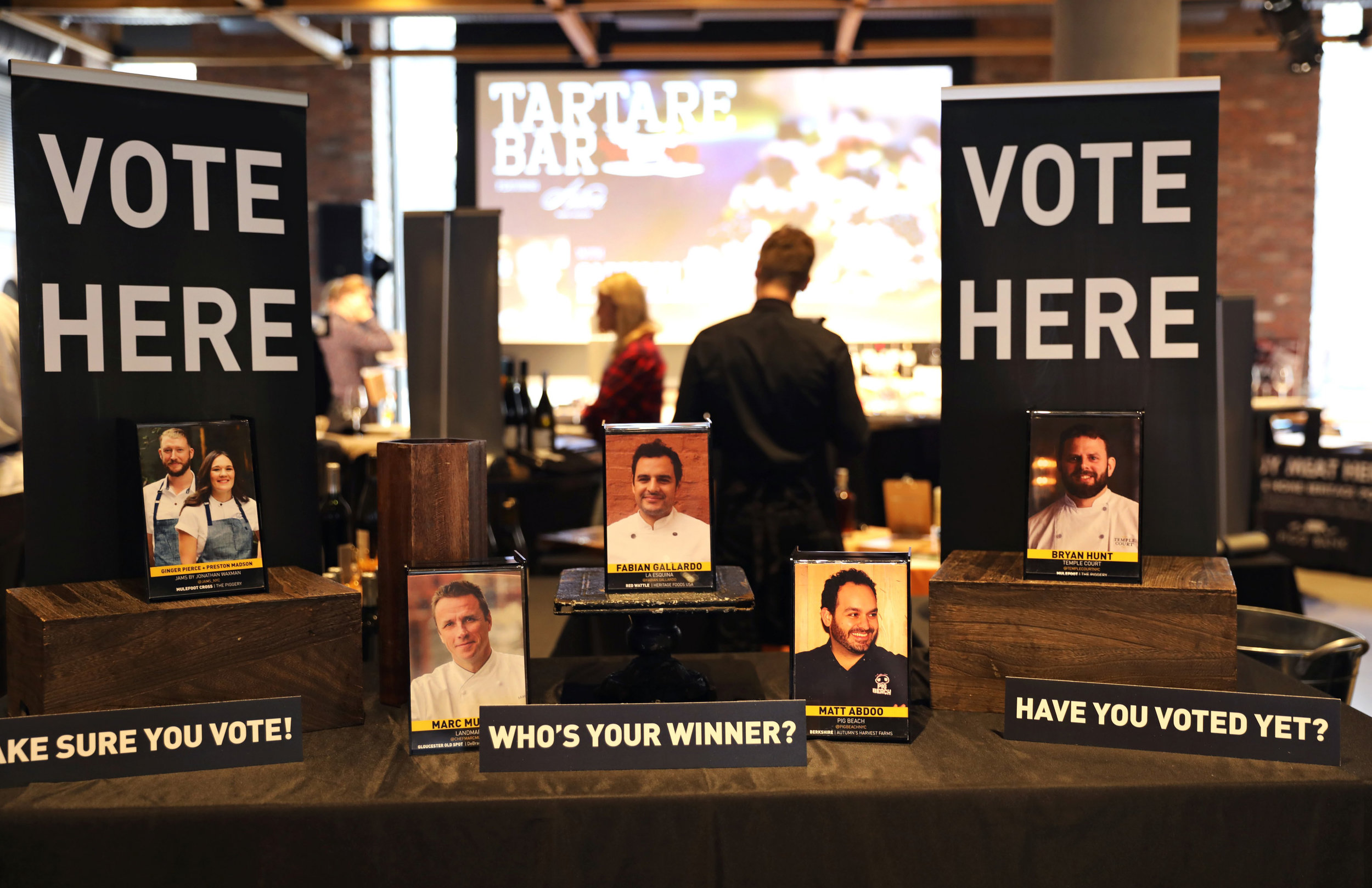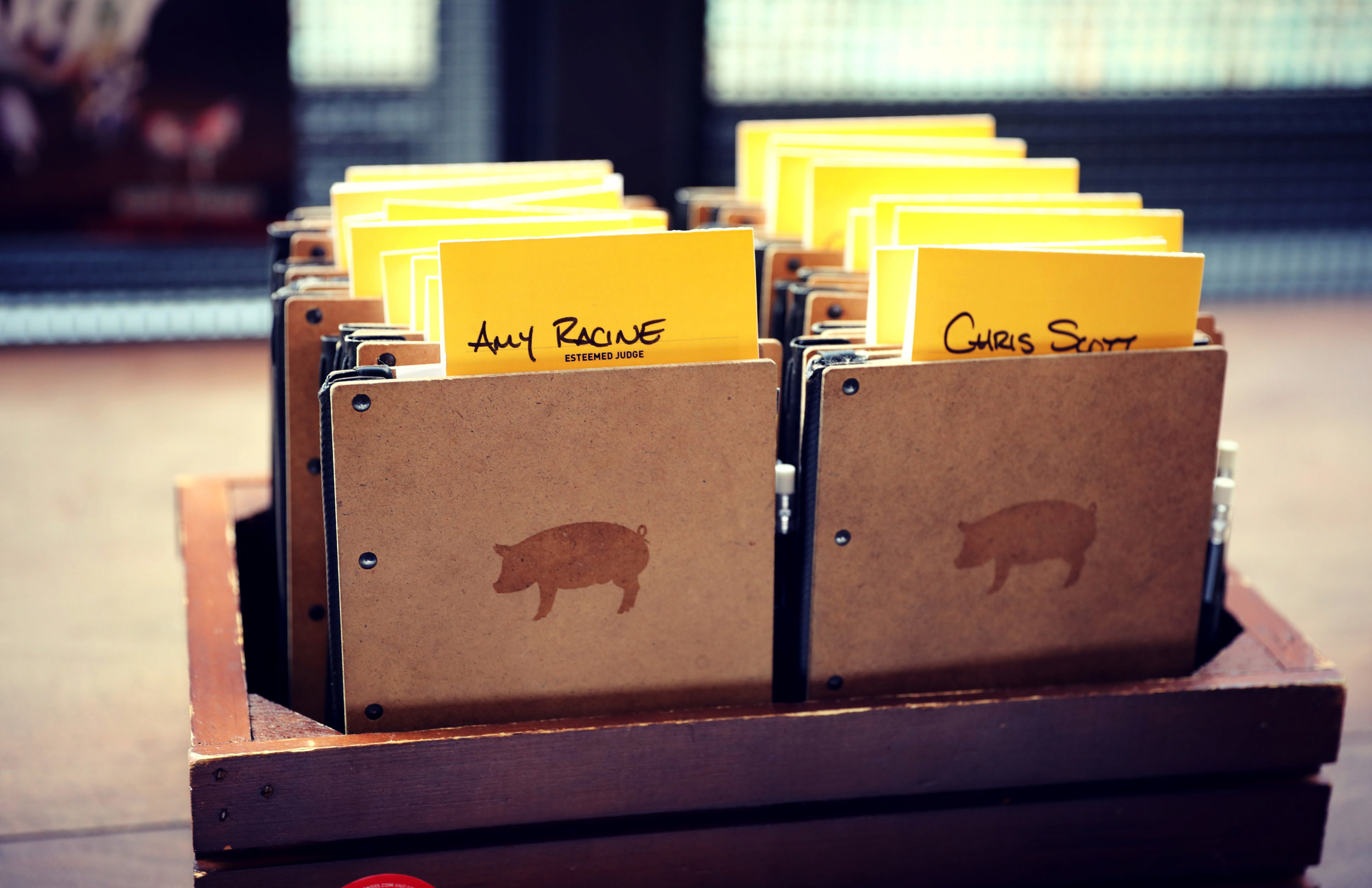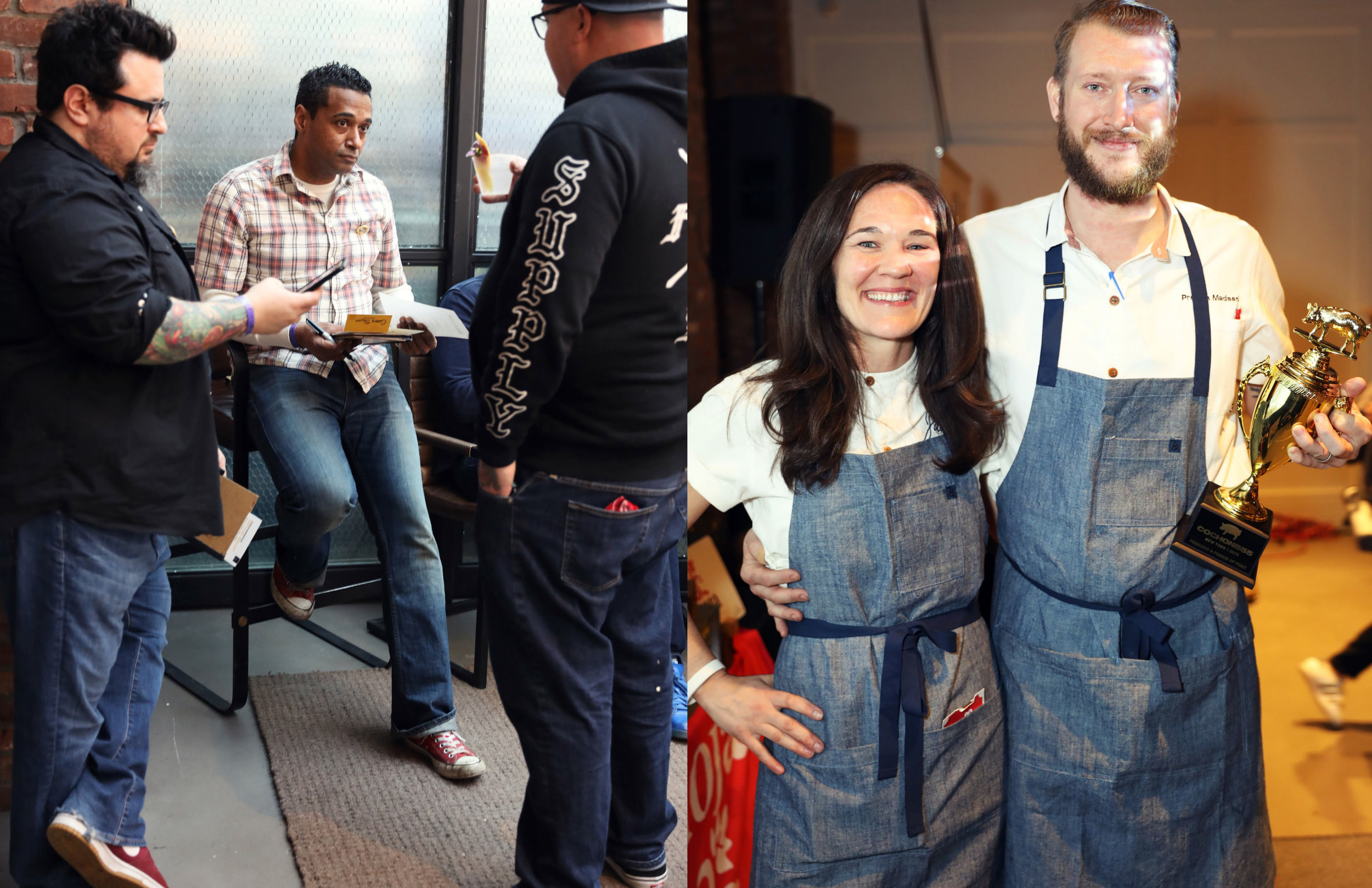We had a great time last year covering the Food Network NYC Wine Food Festival presented by Capitol One. So of course we were looking forward to attending again this year for the NYCWFF presented by Invesco QQQ which had a wide array of events taking place in Manhattan as well as Brooklyn for the first time! Over the 4 days from Oct 17th - 20th, we enjoyed a number of events along with attendees that had access to Grand Tastings, culinary demos, pier parties, dining experiences, walk-around tastings, cocktail parties, live entertainment, lunches, brunches, and master classes.
All of these festivities and good vibes supports God's Love We Deliver which cooks and home-delivers nutritious, medically tailored meals for people too sick to shop or cook for themselves. To support the health of their clients, they provide ongoing nutrition assessment, education, and counseling. They serve people in need and their children and caregivers. To date, NYCWFF has raised $14.8 million to this essential cause!
There's nothing like interacting with your favorite Food Network stars, chefs at restaurants that have been your faves or new to be faves, culinary personalities, wine and spirit brands, restaurant groups, purveyors and culinary enthusiasts! There were laughs, surprises, discoveries and so much more!
SOUTHERN GLAZER'S WINE & SPIRITS TRADE DAY Hosted by Wine Spectator at Grand Tasting - Trade Day
We started our coverage with one of our favorite events that we attended last year, Southern Glazer's Wine & Spirits Trade Day Hosted by Wine Spectator at Grand Tasting - Trade Day which was held at Invesco QQQ Campus located at Brooklyn Army Terminal.
Heading into this event, we knew that we were looking forward to vendors that we had enjoyed last year including Bareburger, Johnnie Walker, and Hampton Water which is owned by Jon Bon Jovi and his son, Jesse Bongiovi to name a few!
One of our favorite bites of the day took place in the center of the action at Modelo's tent, who paired their Spiked Agua Frescas with tacos by Taqueria Ramírez who is based in Greenpoint, Brooklyn.
We also enjoyed swinging by Rosa Mexicano's booth as they had a fantastic pairing of Elote as well as a savory taco. We've had the pleasure of enjoying Happy Hour, lunch and dinner at this restaurant and it was great to see them getting in on the culinary fun!
We even swung by Food Network's large booth that served up a number of cocktals which was the perfect way to enjoy our dishes from Rosa Mexicano.
Last year, we had the pleasure of interviewing Chef Philippe Chow of Philippe Chow and as he participated again this year, we wanted to see what he was up to, why he was there this year, and to hear about his upcoming restaurant openings in Nashville as well as in Miami!
ATHLEISURE MAG: It was such a pleasure to interview you last year at this show. So I'm glad to see you again. Why did you want to come back to be at this festival today?
CHEF PHILIPPE CHOW: Last year was a success and I want more people to know who we are!
AM: Oh, amazing and what are you serving this year that everyone's getting to enjoy?
CHEF PC: Chicken Satay is my favorite!
AM: That’s great, I enjoyed it last year and am so glad that it is here as well!
When you're creating the menu for your restaurant what are the processes you go through to decide what will be on the menu?
CHEF PC: Every time I work on making new dishes, if I like it, it’s going to be something that will be on the menu!
AM: We know that Chicken Satay is your favorite dish! Are there two other dishes that you love having at the restaurant as well?
CHEF PC: Oh well, Peking Duck and another one is the Wagyu Beef Dumplings. That’s a new dish and it’s really good!
AM: Well obviously, we know the two restaurants that you have here in New York and the one that's in DC, but you're opening up one in Nashville as well as Miami! Are you excited about that? Why did you want to go to those two cities?
CHEF PC: I’m so happy! Those are 2 of my favorite cities!
AM: Oh wow! Well it’s always fun to catch up with you and we can’t wait until we dine again at your restaurant in the city and we’ll have to check out your new ones as well!
CHEF PC: Of course, we’re happy to have you!
THE BETTY BOOZE HARVEST HAPPY HOUR Hosted by Blake Lively
At the Betty Booze Harvest Happy Hour by Blake Lively (Gossip Girl, The Age of Adeline, It Ends With Us) attendees made their way to The Seaport at the Lawn Club to enjoy sparkling cocktails and of course to have great bites by a curated group of chefs. One of the restaurants that participated was Restaurant Yuu which is located in Brooklyn. Chef/Owner, Yuu Shimano talked with us about being at the event and what we can expect when we head to his restaurant this Fall.
AM: Why did you want to participate in this year's Food Network NYC Wine Food Festival?
CHEF YUU SHIMANO: The New York Food and Wine Festival is an important event for our industry. I also wanted to participate because it was for a good cause - God’s Love We Deliver, which cooks and home-delivers nutritious, medically tailored meals for people too sick to shop or cook for themselves.
AM: Tell us about the event that you were part of!
CHEF YS: Blake Lively and surprise guest Michael Kors hosted the Happy Hour event. It showcased the launch of Blake Lively’s Betty Booze’s gourmet cocktails, handcrafted by Lively herself.
It took place at the Lawn Club where guests could play lawn games and socialize and try Blake’s new product.
AM: What did you serve guests?
CHEF YS: I prepared a very French dish, which was a Corn Consommé with Duck Confit.
AM: What can guests expect when they come to Restaurant Yuu?
CHEF YS: Upon arrival, Guests are seated at a beautiful L-shaped 19-seat tasting counter; a carefully curated collection of classical and jazz music plays as the curtain opens, the lights go up, and a row of chefs inside a kitchen is revealed. I personally greet each guest then with the clap of my hands, my team members scramble to their positions for the show to begin. This is our way of welcoming guests and making them feel special. It is high-level while having fun with fine dining.
AM: As we're in the fall and looking forward to the holiday season, are there any events that are going on that we should keep an eye out for?
CHEF YS: We have an exciting event coming up on November 27th. We’re thrilled to welcome renowned Japanese bartender, Shingo Gokan for a special collaboration. Guests can look forward to a unique dining experience featuring a curated menu with exquisite cocktail pairings designed by Shingo for each course.
MEET CUTES NYC PRESENTS TACOS & TEQUILA HOSTED BY MICHAEL VOLTAGGIO PART OF THE PERDUE EVENT SERIES
We continued from the events earlier in the day to Wall Street at night for Meet Cutes NYC presents Tacos & Tequila Hosted by Chef Michael Voltaggio part of the PERDUE Event Series at Hall des Lumières. This is one of the later events on the schedule and perfect to enjoy on a Friday night! Knowing that we would be able to enjoy some of the best tacos in Manhattan and Brooklyn as well as an array of tequila and mezcal brands as well!
Chef Michael Voltaggio was the host for the night and he also launched his brand new tequila at the event, Marcado 28. Last year we had the pleasure of having him for our JUL ISSUE #91 cover, so it was great to catch up with him to find out about his participation in this year's festival, this tequila, and upcoming projects!
ATHLEISURE MAG: We enjoyed having you as our cover last year and it's great to see you at Tacos & Tequila! Before we delve into why you're at this event, we enjoyed the latest season of Bobby's Triple Threat. What do you love about this show and do you have a favorite episode from this season?
CHEF MICHAEL VOLTAGGIO: Bobby has created something very special with triple threat. We function as a team and he’s the best coach we could ask for. My favorite thing is the individual cooking POV’s that each chef challenger brings to the competition. Win or lose, we learn from every chef that walks into the club.
AM: You're hosting Tacos and Tequila! Why do you enjoy participating at Food Network NYC Wine Food Festival?
CHEF MV: Lee Schrager has been putting on both South Beach Food and Wine and New York Food and Wine for many years. As our industry continues to evolve, so does the festival year after year. I get excited every year to see what events we get to host and or be a part of. It’s always fun to reconnect with my peers twice a year as well as have the opportunity to eat, drink and party with all the fans.
AM: You just launched and debuted Marcado 28 today at Tacos & Tequila! Why did you want to partner in this tequila and how did this come about?
CHEF MV: I look at every project as an opportunity to learn something new. My goal is always to absorb as much information as I can, and the reward is getting to share this information and these experiences with as many people as possible. With Marcado 28, I was given an opportunity to learn everything from building a unique brand, to the history and production of tequila with a family that’s been doing it for generations. This is bigger than just a new spirit, it’s the spirit behind the spirit that I’m excited about. It’s the authenticity and commitment to creating something special that attracted me to this project and every partner involved has contributed their passion and expertise to create a tequila for everyone.
AM: You also worked with 2 tattoo artists to create the art for the labels. Why is this tequila also a love letter to tattoo culture and why is someone's tattoo story so important?
CHEF MV: More about the love letter of defiance. We all have something defiant about our personal stories and this is not to be dismissive of those stories, but rather embrace and share them in a communal and positive light, while having some fun.
AM: It's always fun to see what you're up to with your restaurants Voltaggio Brothers Steakhouse and Vulcania! Is there anything that we should keep an eye out for?
CHEF MV: My brother, Bryan and I are currently working on a new project in our hometown of Frederick, MD.
IG @mvoltaggio
After chatting with Michael, we navigated a number of the restaurants participating, we also took in the immersive space that continued to change with digital art throughout the night which made you feel like you were in an art gallery.
We took some time to talk with Tiny's Cantina with a fun conversation with Chef Cenobio Canalizo and Mathew Glazier, President of the GlazierWorks which is a restaurant group that includes this property as well as iconic eateries including Michael Jordan's The Steak House in Grand Central Terminal, Strip House, and Monkey Bar to name a few.
We talk about Chef Cenobio's culinary journey, Tiny's Cantina, the flavors of Mexico, and why they wanted to participate this year at the NYCWFF.
AM: Chef Cenobio, what was the first dish that made you fall in love with food?
CHEF CENOBIO CANALIZO: Ooo that’s a question!
MATHEW GLAZIER: I want to hear this because I'm learning about you!
CHEF CC: No, no.
MG: We've worked together for 28 years.
AM: Ok, that’s a long time!
MG: That’s a question that I don't even know the answer to!
CHEF CC: Well, the first time, which I think I did was make homemade tortillas.
AM: Ooo
CHEF CC: Yes. In Mexico when I was eight years old.
That's the first that I learned. It was making tortillas and that's when I started cooking.
AM: Wow. And what was yours?
MG: It was probably pizza! I’m from NY so it probably has to be pizza! I remember when pizza was a lot less expensive then it is now.
CHEF CC: You know what’s crazy? So my partners, we come from Mexico and they used to go like out of state selling flowers, right? So one day I stayed with all my brothers and they said that I had to make the tortillas and I was like really? So I did it.
MG: They were much more authentic.
CHEF CC: The funny part is I got some avocados and there were 3 of them and that’s not enough for my older brothers. So what I did was chop the avocados and I made some guacamole and I added some water and I made some soup avocado! It was so good and you’re dipping the tortilla it was so good!
MG: He’s so creative!
AM: Tell us about your culinary background and how did you come to Tiny’s Cantina?
CHEF CC: Everybody asks me like, what school and where I came from and my answer is I learned in the kitchen. So, every restaurant I worked in, I learned from there! When I started working, I was a dishwasher in 1994.
AM: Wow!
CHEF CC: In 1995, like, I moved to the kitchen and I started learning like everything, like from scratch. Desserts, pantry, grill and all the way to chef!
MG: We actually do kind of the same thing now with the guys we have and it’s actually interesting to watch. It's not lost on him, you know his path and a lot of guys or women, you know, you start in the kitchen and you start from the beginning and, you know, it's a craft. You gotta learn like the right way. And it's very interesting for me to watch. I think if somebody, we just gave a raise to last week, he started as a porter and then he went to the line and now, he earned that position and, you know, hopefully God bless, you know, he becomes whatever he wants to be.
AM: That’s amazing!
MG: I don't think it's a unique story to us. It’s kind of still what's special about kitchens. But he kind of skipped over the fact that he had 2 Stars from the New York Times for the steakhouse.
AM: Which is amazing!
MG: We had a restaurant called Strip House and you're not old enough to remember working at a restaurant, called, Arizona 206, which was before that. I'm speaking for you so that I can give the concise version.
But then you also had, you know, Mike, who's the Head Chef of Michael Jordan Steakhouse Grand Central and then we, we actually sold a bunch of our restaurants to Tilman Fertitta CEO/Owner of Landry's.
And then we ended up doing a barbecue restaurant in Brooklyn. So that wasn't his craft, and then he turned it into his craft. He's the guy who smokes the meat. It's a labor of love because there's no shortcuts and then in 2021 right next to Morgan's there was a small restaurant which is literally why it's called Tiny’s. Some people insult me and say those are Tiny’s because I'm a big guy. No, it's Tiny's because the restaurant's small and I was speaking for him but you know we've known each other for a very long time. This is the opportunity for him to do like you make the ham tortillas and to make the things he's talking about, make his stuff that, you know, that he learned when he was younger, which is kind of kind of cool!
AM: Wow!
MG: He does the hard work. I'm the pretty face. But next year I do the hard work and he's the pretty face.
AM: Plot twist!
MG: We do odd and even years.
AM: Well, why did you guys want to be at this event? I mean, I love tacos, love tequila and mezcal. So why did you guys want to do it?
CHEF CC: I mean, I think this event is great. It's a great opportunity for the restaurant and for my company. To bring it in this event, it’s not just 100 people, it’s a lot of people! They’re going to be able to know about the restaurant a little bit more. Tiny’s Cantina, it's a small place next to the Barclays Center in Brooklyn. So we want to spread the name and for people to try our food and to know more about our authentic Mexican food.
AM: Why did you want to do it?
MG: We have a Mexican restaurant and it's a Mexican restaurant event! No seriously, we've done it for years with different restaurants, you know, we have done barbecue. There are so many events that this festival has! This one's one of the fun ones! It’s late at night and it's a different type of atmosphere. I think you can take the food seriously without being too serious about it. When I look around at those who are participating, they're fabulous, and we’re people coming together and in a way providing the festival goers who are customers to let them have a good time. Let them get exposed to some restaurants! This year, they're focusing on Brooklyn, which is great.
AM: So great.
MG: So we're two Brooklyn restaurants right here and you know it's exposure. You know we've been playing in the barbecue world for a while. We have been doing these barbecue competitions for awhile and this event is special. Tonight’s event has a little bit of a party vibe and hopefully, everybody has a good time! We have a great space up here!
AM: So what are we eating tonight? What are you guys serving?
MG: I'll give the terrible English version – Birria De Res which we debated what does Birria De Res mean. If you want to hear where that came from –
AM: I would love to.
MG: So I was like, what does Birria De Res mean and he’s like beef. So I said, what the De Res part? And he was like beef. So, you gotta take it out of context. So how long do you roast the beef on the bone for?
CHEF CC: Ok so let me just explain a little about how we do it in the restaurant. So at the restaurant, basically we serve it with some consume and some marrow bones. Here, we serve it with some onions and cilantro. I braise the beef for 4-5 hours, I cover it and do not open it and you leave the whole piece of meat inside and that's the way how we cook it.
MG: I’m still trying to understand.
CHEF CC: Well basically Birria, you can do it with different meats. You can do it with lamb, or any kind. So the Res is the type of meat and that’s what we say in Spanish. So Birria is the Res and the Res is beef. That's what we're serving tonight with the 3 different sauces.
AM: Yum!
CHEF CC: We have avocado, which this one is mild. Medium is pumpkin and Chile de Arlo which is smooth and spicy!
MG: We did this event last year and throughout the whole event I was going, Pumpkin, but it's not seasonal. So we actually do it all year round.
AM: When we come to the restaurant, what are 3 dishes that we should eat and both of you need to share your picks!
MG: You give two and I'll give one.
AM: Okay!
MG: Because you're the chef and as I said, I’m the pretty face!
CHEF CC: Number one.
AM: Okay.
CHEF CC: Number one, do you want to start with an appetizers? If you want to start with an appetizer, we have a great Guacamole Tropicale. Why is it Guacamole Tropical? It’s because we we garnish with some mango, grilled pineapple, and pumpkin seeds.
For an entrée, I have a bunch of dishes but try the Birria Tacos it’s just special. It has that flavor with that Romero and the tacos that way that we do it with the tortillas, you need to try that. That's number two. My other entree try the Fajita! The Fajita has that smell and that flavor. When you bring it to the dining room with that smell and you have the aroma with the herbs.
MG: It's great. Our restaurant is so small when you sell one, people just keep purchasing it!
CHEF CC: We do shrimp, steak, and chicken.
Now the new one we have is a fajita and is a surf and turf we do it with lobster and steak for 2.
MG: My favorite is actually the least expensive Taco on the menu which is a popular thing to say. Well you know what it is?
CHEF CC: Yes, the Chicken Tinga!
MG: No!
CHEF CC: Which one?
MG: Taco al Pastor!
AM: Yes! I love Taco al Pastor!
MG: You know why? Because what he does to make these tacos, you should explain the culinary side of it.
CHEF CC: So the Tacos al Pastor, I started doing a little bit and you know, my daughter, she really knows, she's 16 years old. She really knows about these tacos because she travels to Mexico a lot and she really knows about good Taco al Pastor. Every restaurant we go to - she only smells it and says, “I don't like the stock, this is not the original,” but somehow I did it with my tacos at Tiny’s.
You know the way that we have the color, how we cook the meat! It's a killer and she loves it!
MG: It's fun. Actually you know so we've been doing this a while and, you know, this restaurant compared to most - the food's just good and there's no pomp and circumstance to it. We've all done fine dining. This is all about the food and it's, you know, like for me it's just very refreshing.
We had Strip House and I remember when I was doing side carving chickens table. Like, enough of that! This is coming into eat and to enjoy yourself. Hopefully you have 5 drinks and you're not driving and you go home. That's the nice thing about being a New Yorker and being by the Barclay Center.
Just enjoy yourself and it's not expensive. Mexican food is very competitive in New York. It just is and the market won't take very expensive. It's all very reasonably priced and it's just good food, enjoy it and get a little on your shirt and then go home. It’s very different than what we did before and I think that it’s very good to have fine dining. In that world, you care how many inches the fork or the knife is from the table. Like we're not driving ourselves crazy, right?
CHEF CC: Yeah!
MG: I really like that he puts in the work in the kitchen and I think that we have the easy job in the front of the house because we just have to serve it. It takes four minutes to serve and it takes five hours to make it.
It's fun. Actually, you know so we've been doing this a while and, you know, this restaurant compared to most - the food's just good and there's no pomp and circumstance to it. We've all done fine dining. This is all about the food and it's, you know, like for me it's just very refreshing.
We had Strip House and I remember when I was doing side carving chickens table. Like, enough of that! This is coming into eat and to enjoy yourself. Hopefully you have 5 drinks and you're not driving and you go home. That's the nice thing about being a New Yorker and being by the Barclays Center.
Just enjoy yourself and it's not expensive. Mexican food is very competitive in New York. It just is and the market won't take very expensive. It's all very reasonably priced and it's just good food, enjoy it and get a little on your shirt and then go home. It’s very different than what we did before and I think that it’s very good to have fine dining. In that world, you care how many inches the fork or the knife is from the table. Like we're not driving ourselves crazy, right?
CHEF CC: Yeah!
MG: I really like that he puts in the work in the kitchen and I think that we have the easy job in the front of the house because we just have to serve it. It takes four minutes to serve and it takes five hours to make it.
Look, t's fun. I don't think anybody really loves the way that I think of Tiny’s in my mind, but I think it's like a bar and everybody should walk and be like, oh my God, the food's good. It’s kind of under the radar. People are coming in for the games and we're packed for every event.
AM: Yeah, being by Barclays is such a great location.
MG: We only have like 10 tables.
AM: Wow.
MG: 18 bar stools and they're coming in. It just kind of blows you away. This is a very understated route, you know. It’s about the food. We're not all dressed up. We're doing what we like to do.
Being at the Barclays Center, and I’m sure a lot of places have this, but if Justin Timberlake is performing, we have that crowd, when the Liberty is playing we get that crowd and we have such a diversity of people that come to our restaurant and of course being on Flatbush Avenue is diverse by its nature!
You know, price - not everybody can afford to go out and spend on the million dollars. We've been in those restaurants where you're our average check, you know, is $125 per person. That's not everywhere and not everybody can afford to do that.
For some people and it's in New York, money is no object. That's not my customer on Flatbush Avenue. My customer may be going to the Nets. So I gotta make sure that we're providing a value, you know, you got to go in there and say that was worth it or else.
PF: How much is the surf and turf?
MG: That’s the most expensive item on the menu and it’s like $42,
CHEF CC: It’s for 2 people!
AM: Oh okay!
MG: We give you half a two pounds lobster. I know because I just bought them. A 2-lb lobster is $26 so that’s $13, a pound.
How big is the steak that is on there?
CHEF CC: 8oz. We serve it with a side of rice and tortillas.
MG: So that's probably one of our higher food cost items. So the tacos, I like the pork – the Tacos al Pastor is $13 on the menu!
PHOTOGRAPHY CREDITS | Paul Farkas
Read the OCT ISSUE #106 of Athleisure Mag and see New York City Wine Food Festival 2024 in mag.



























